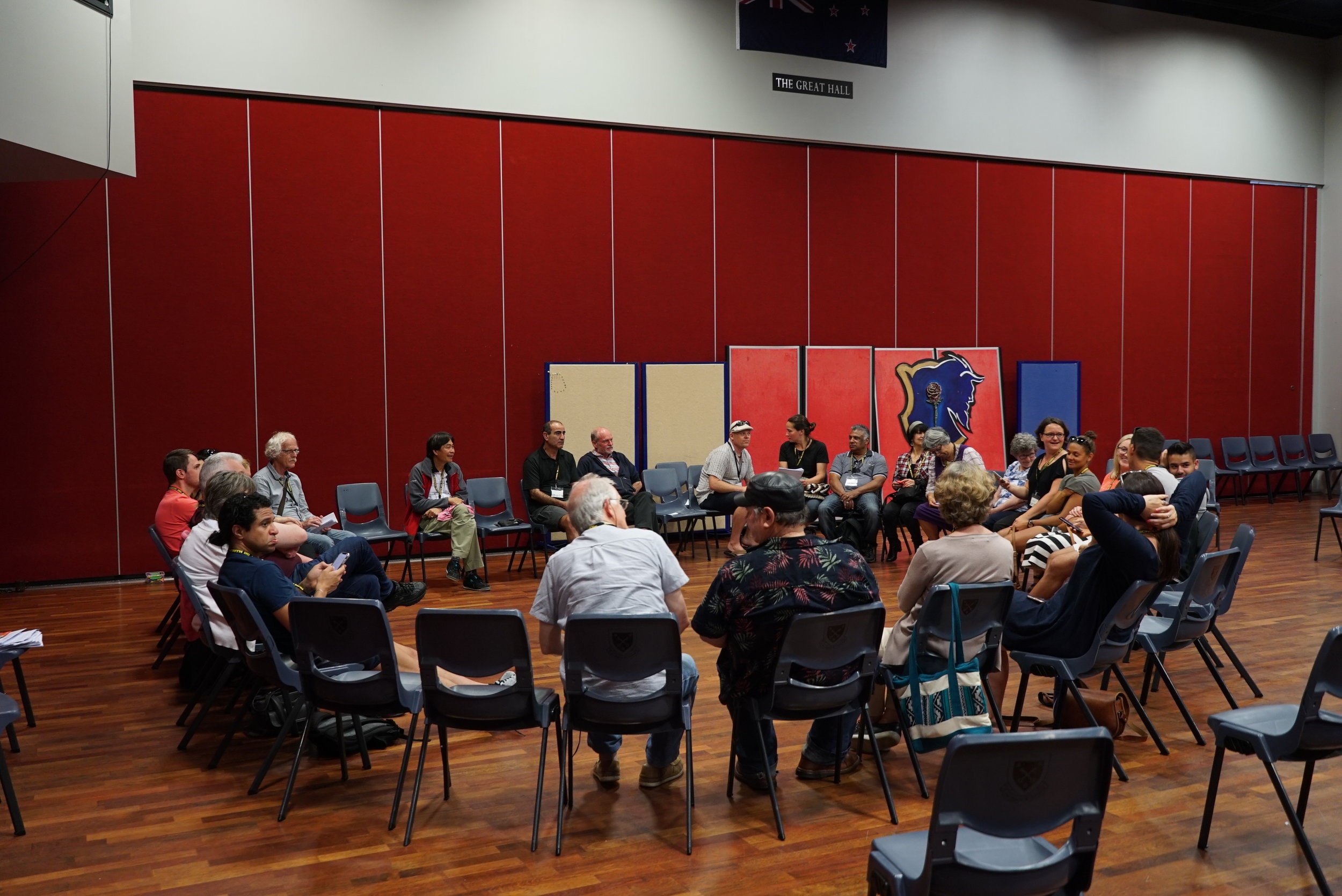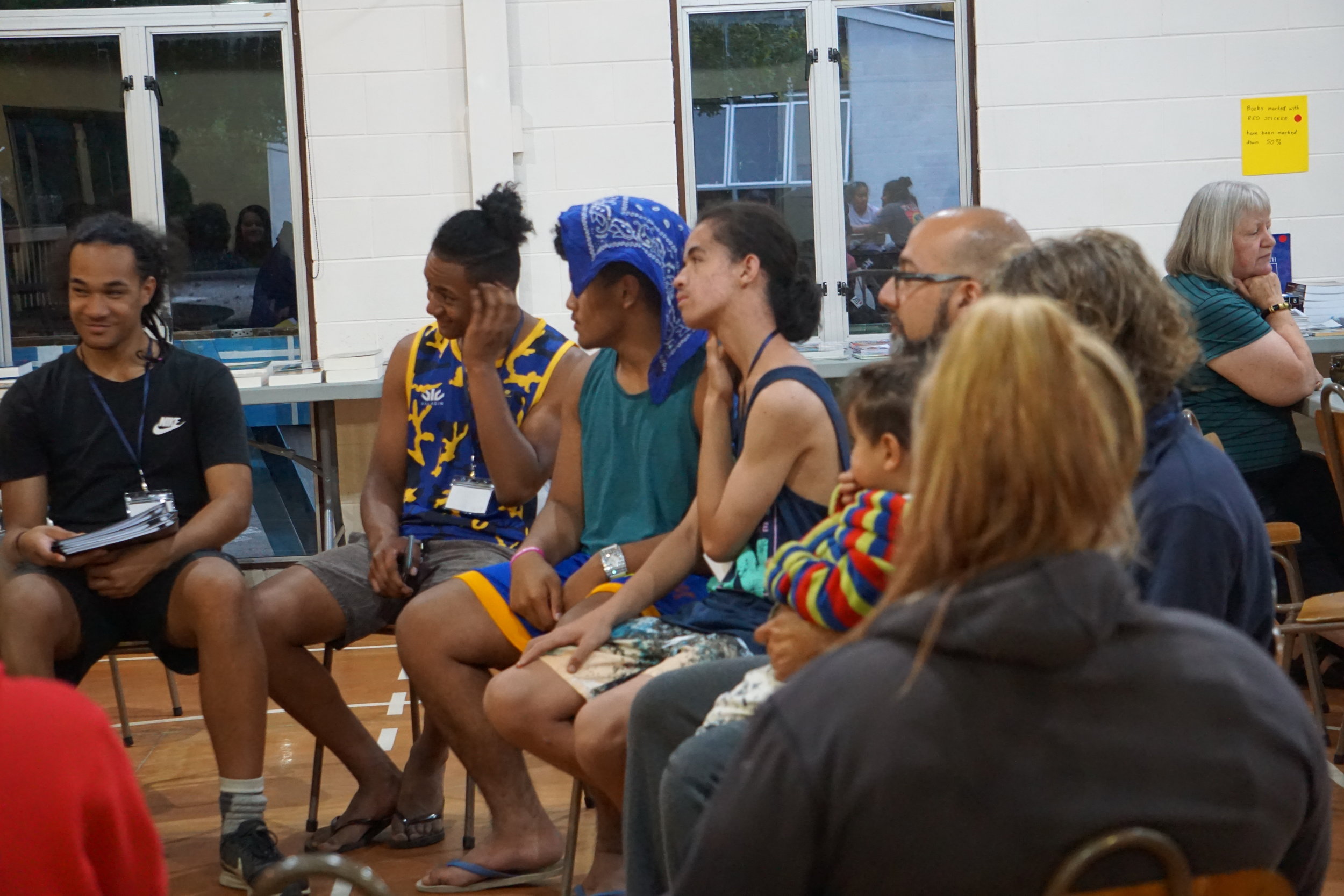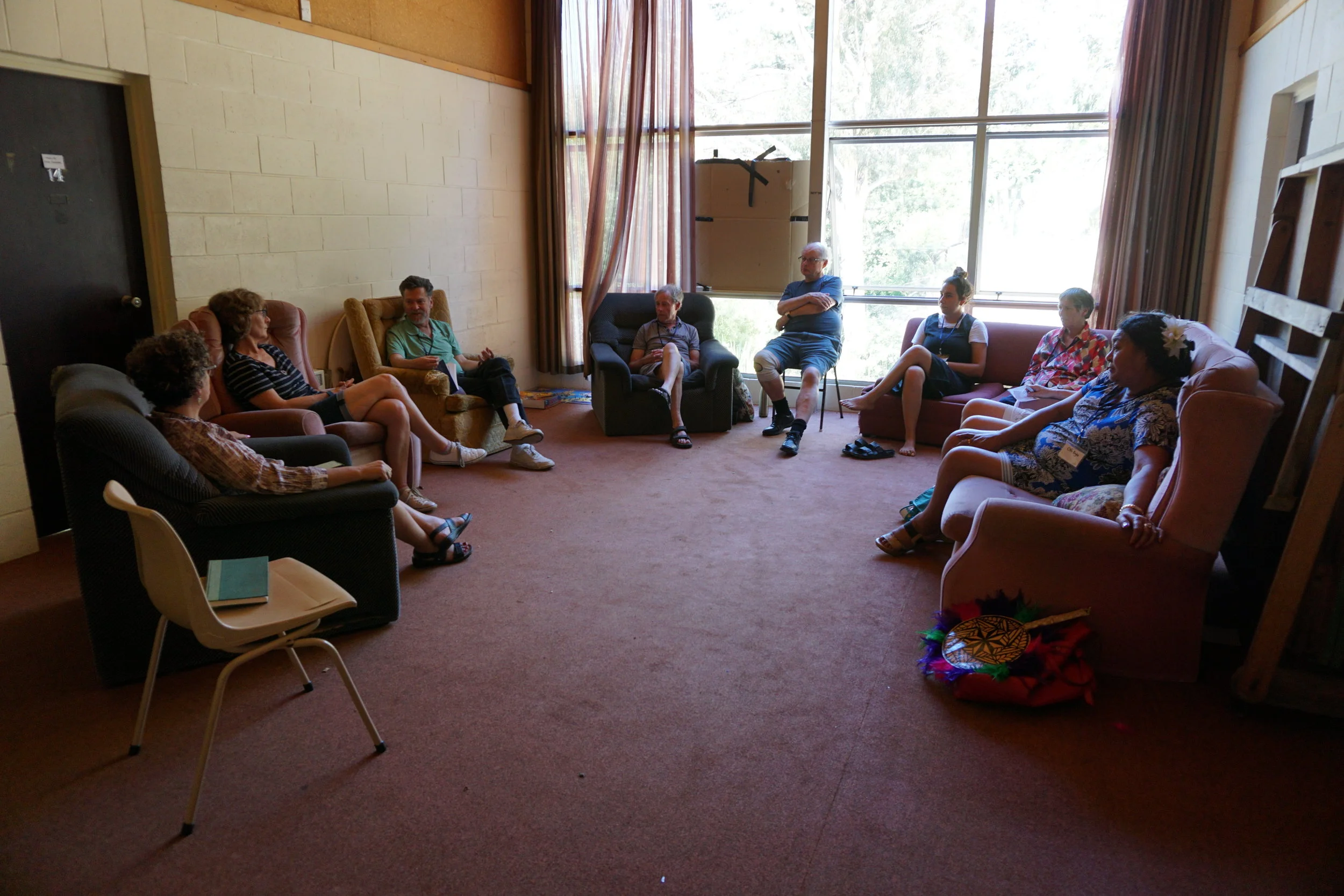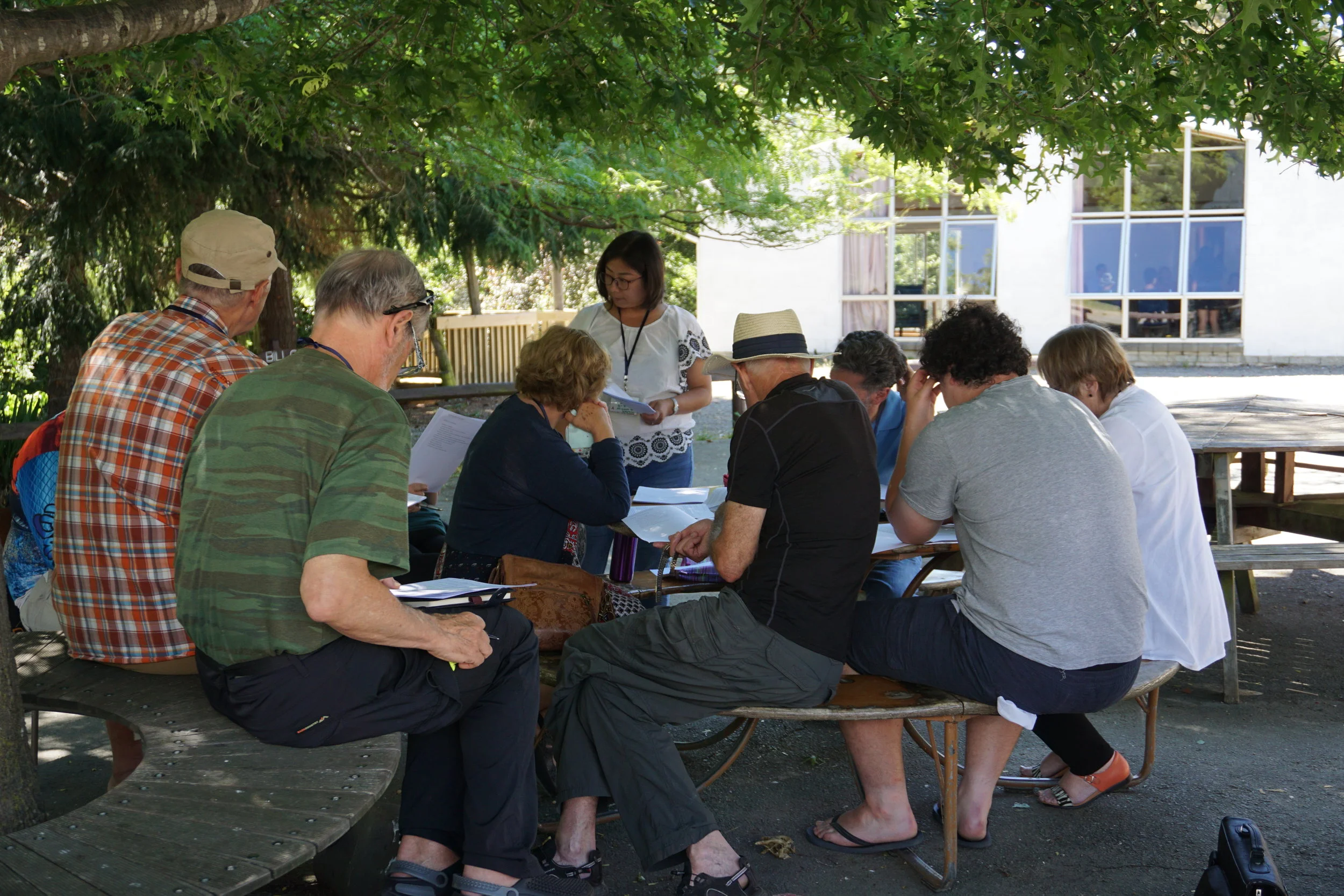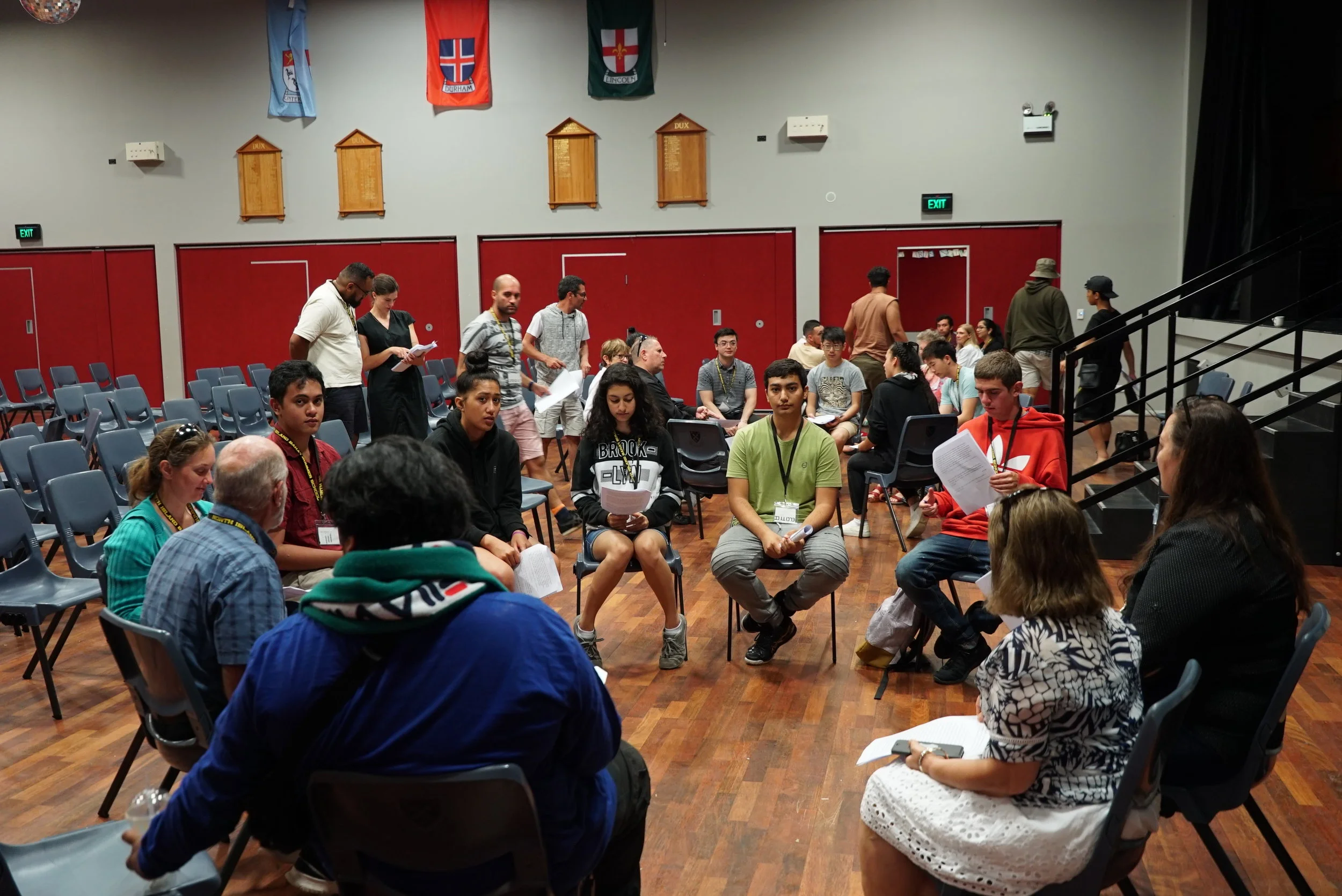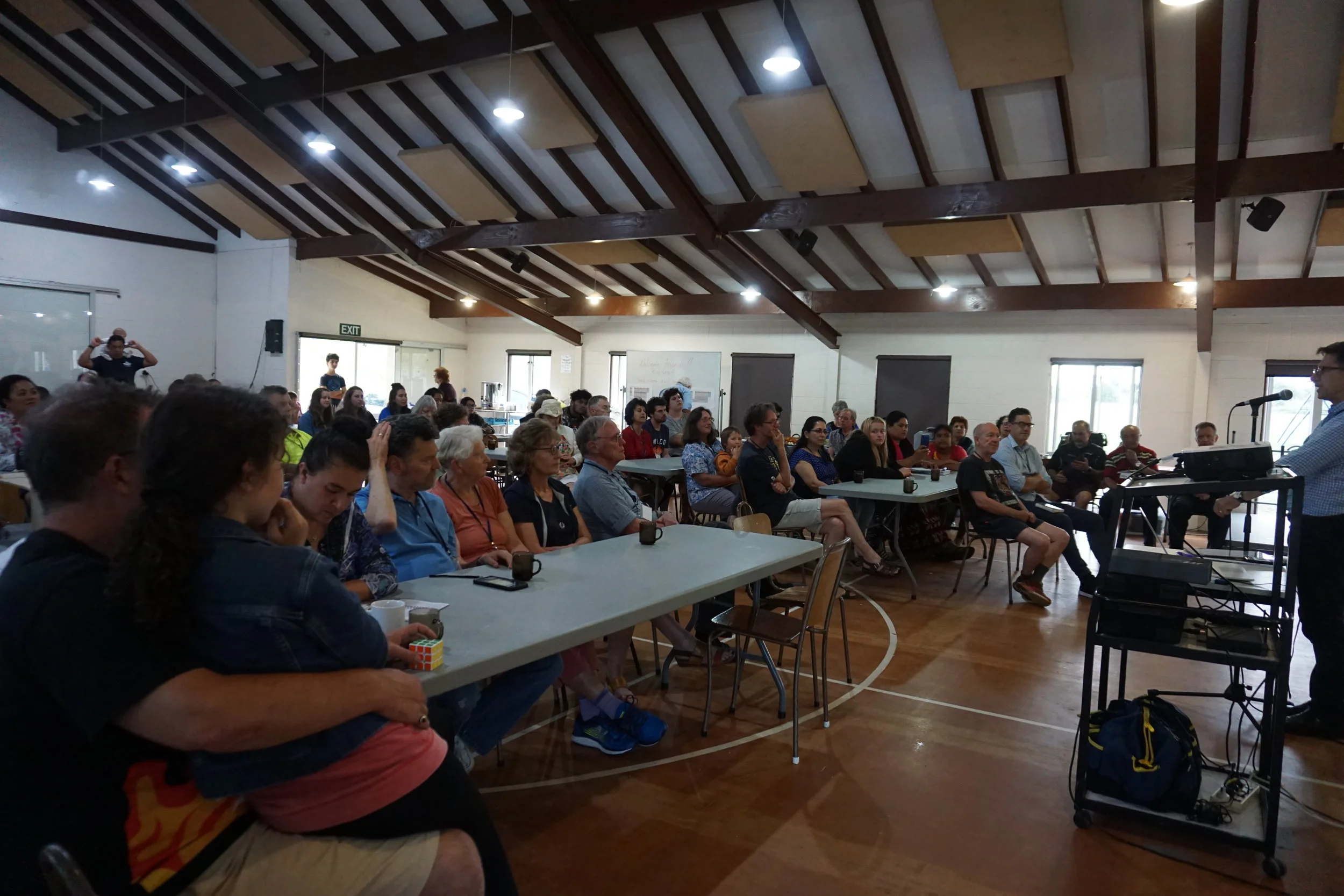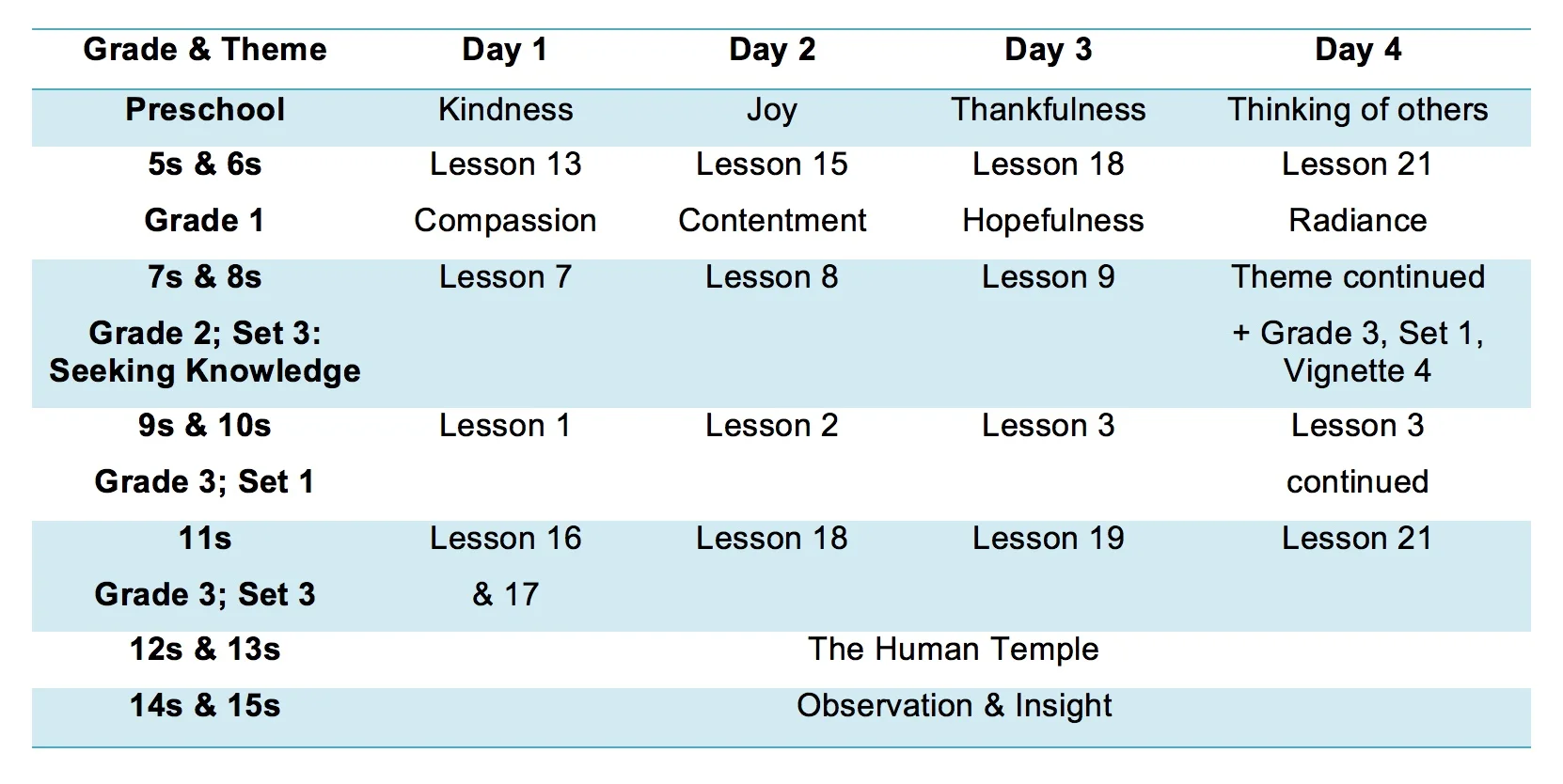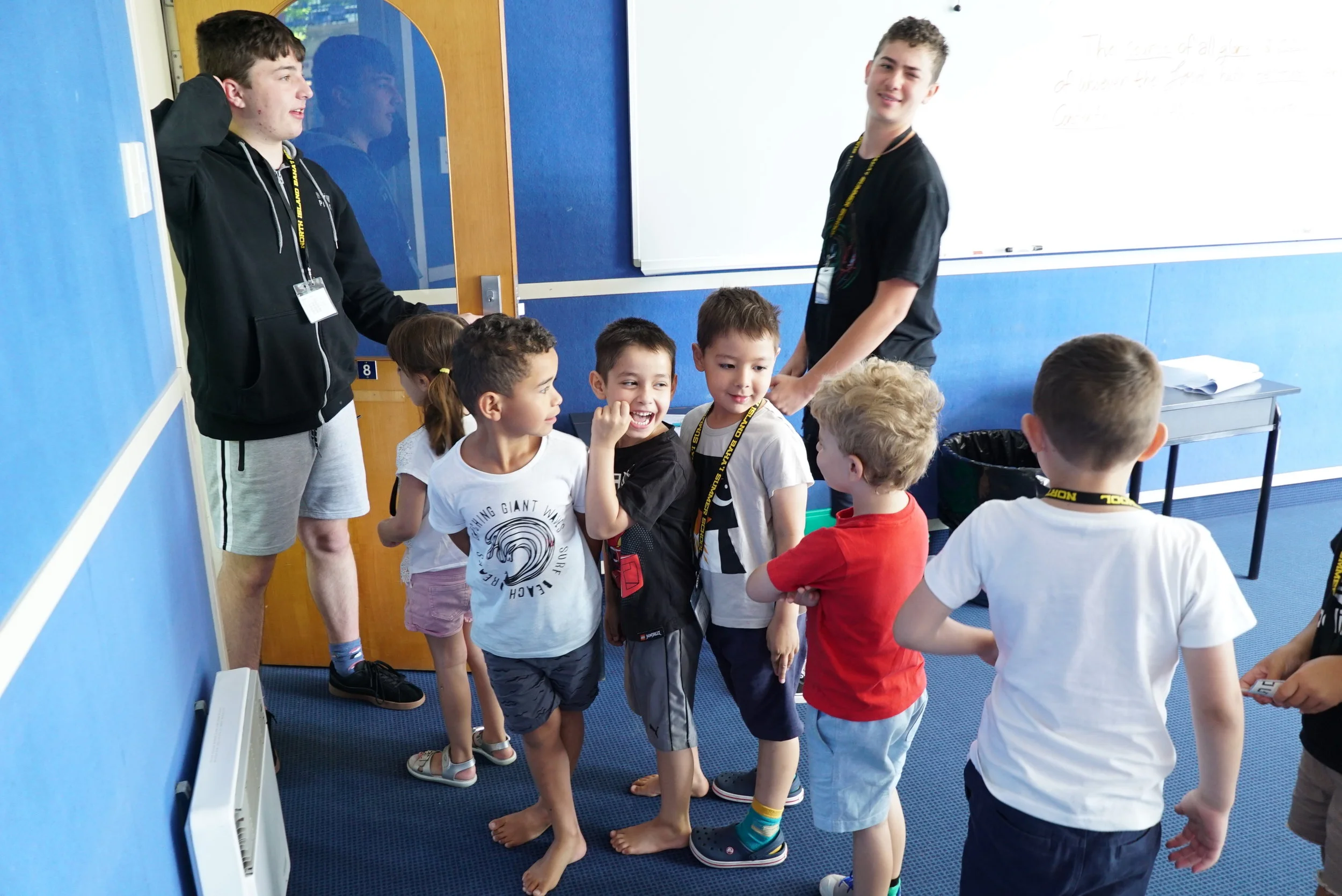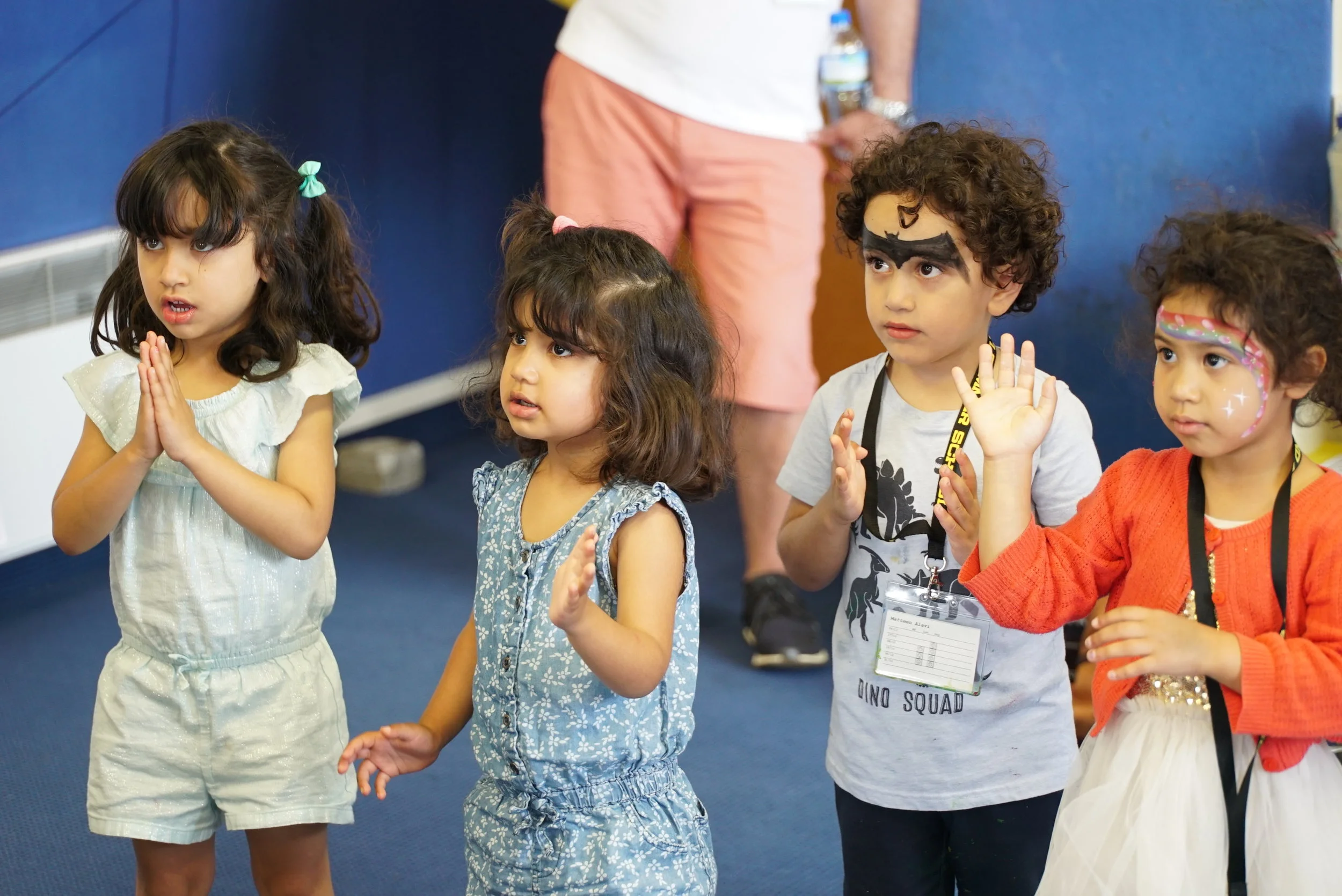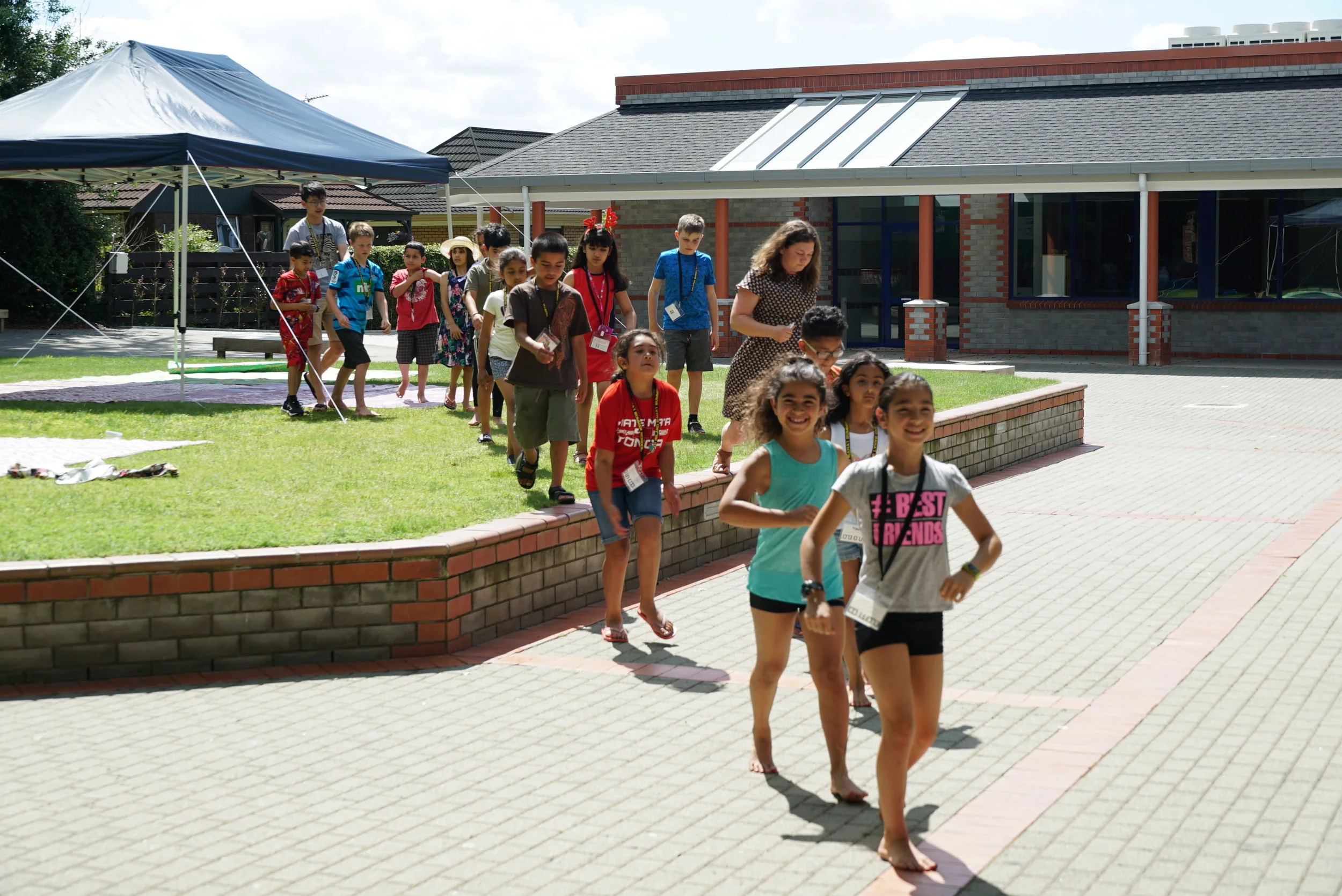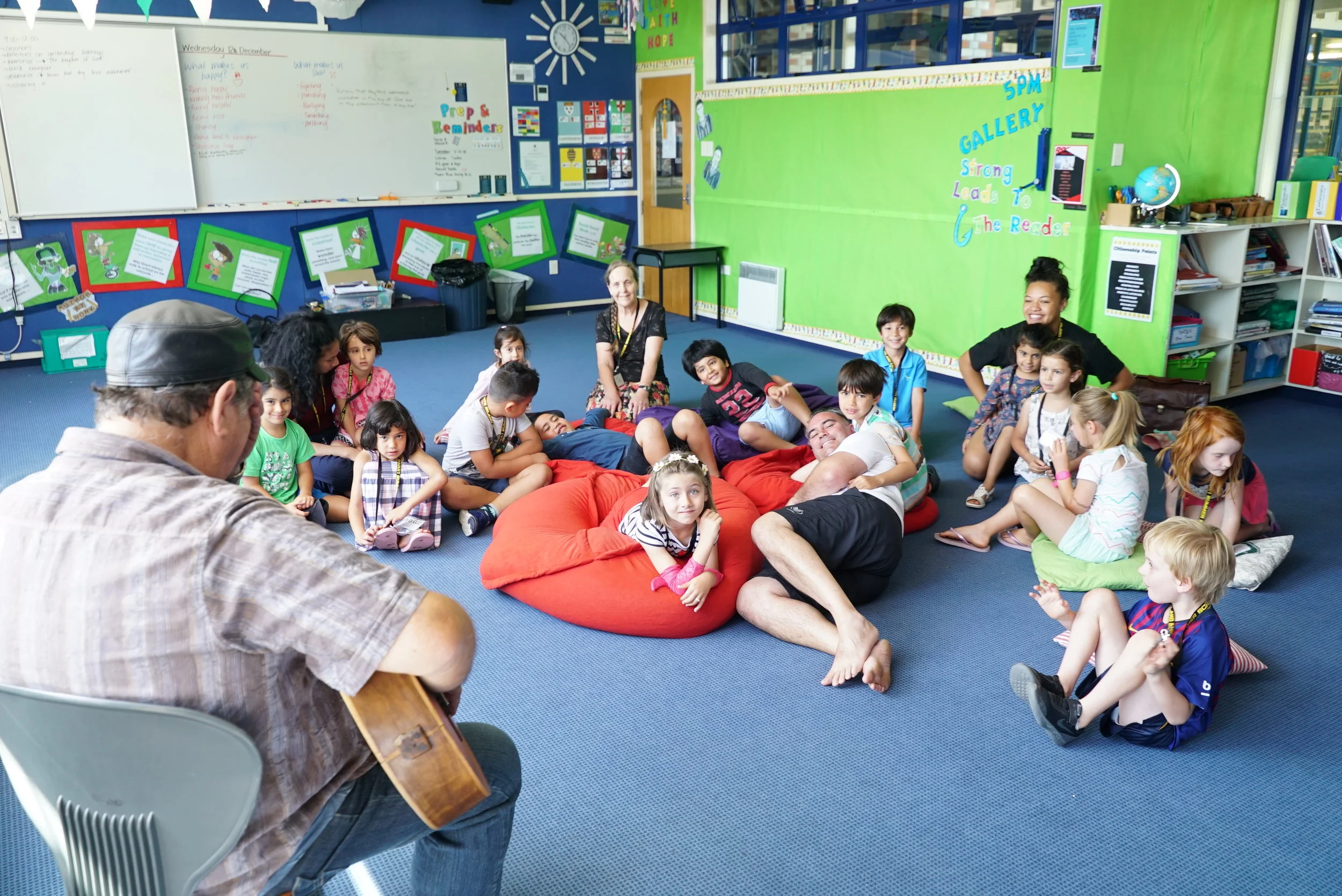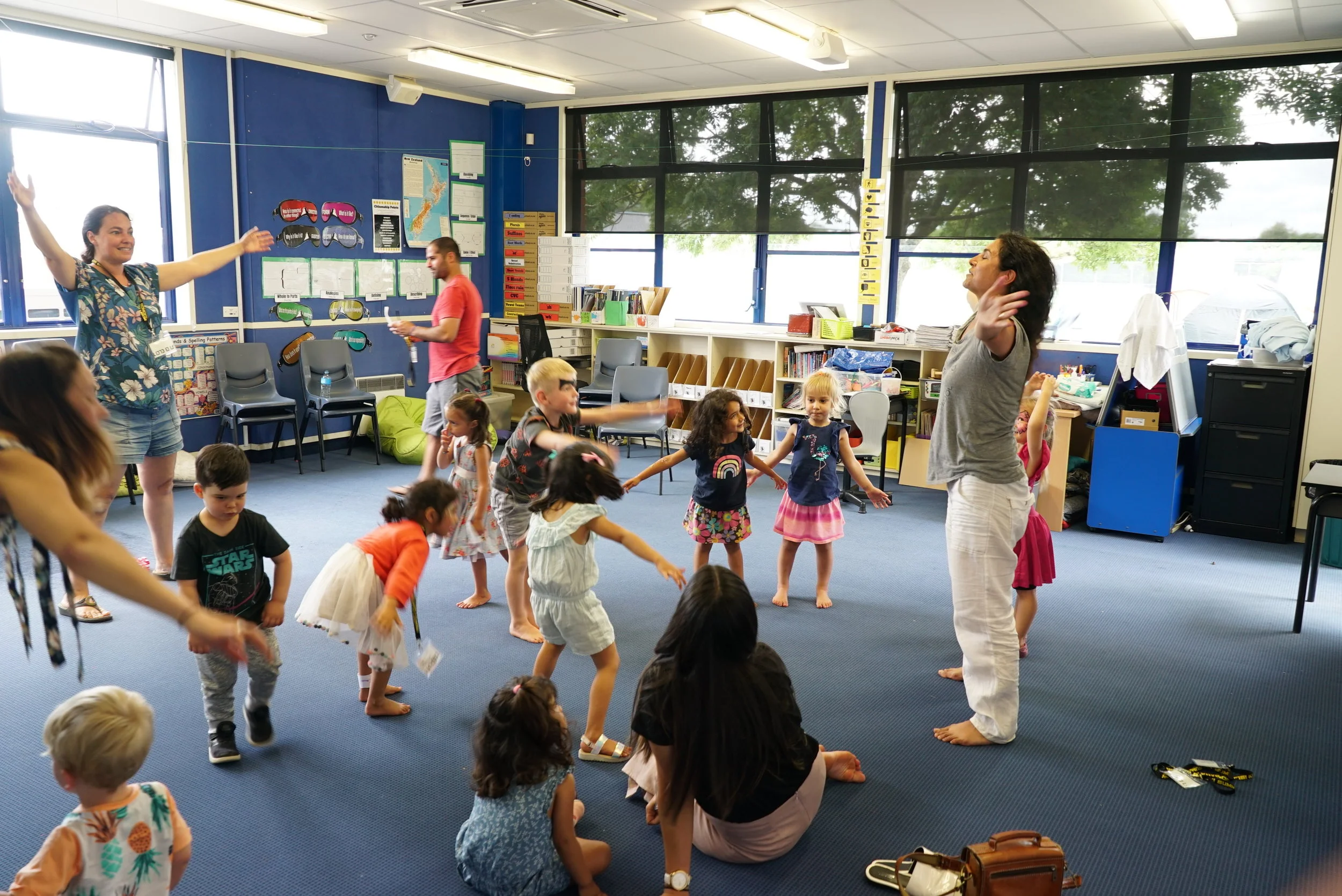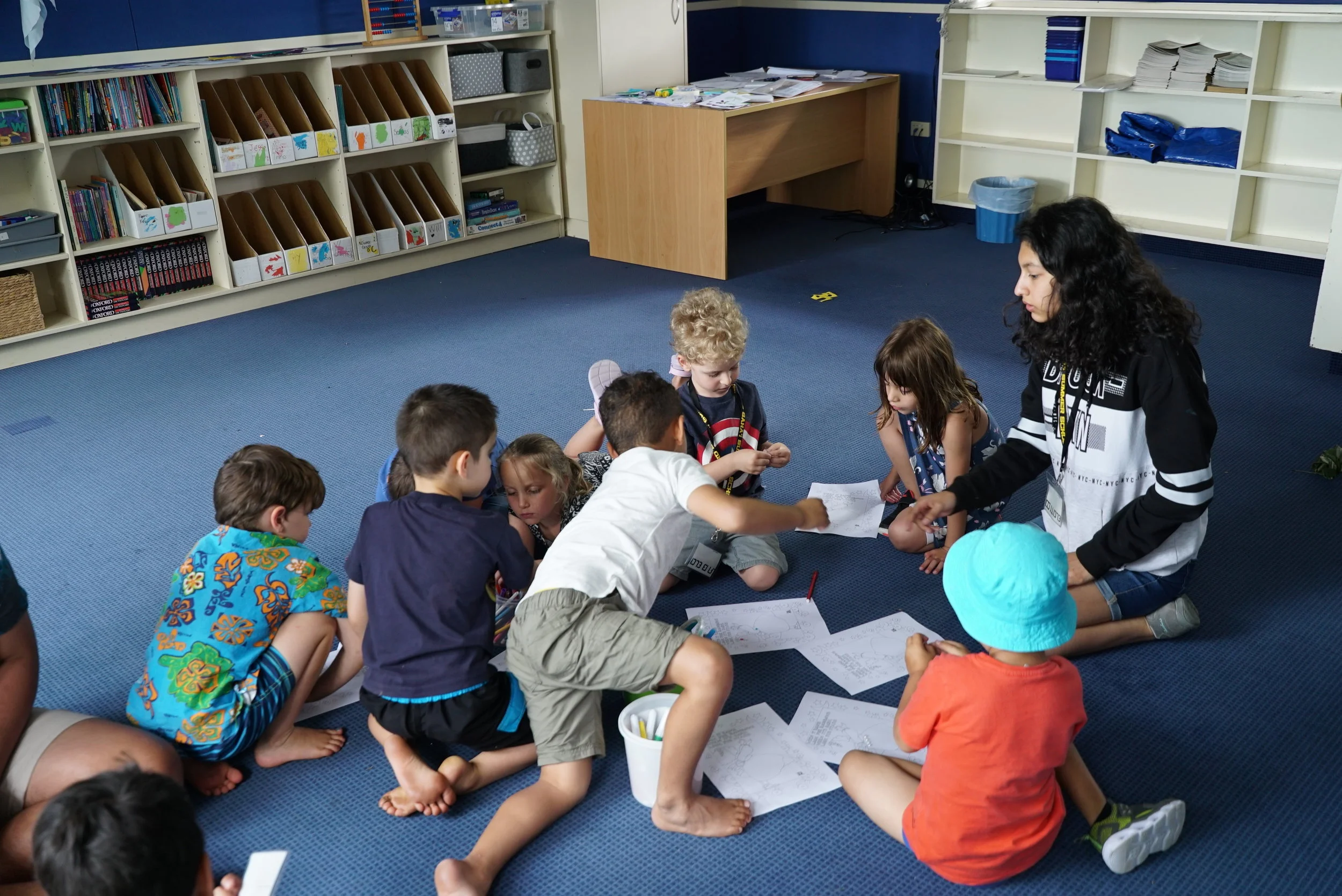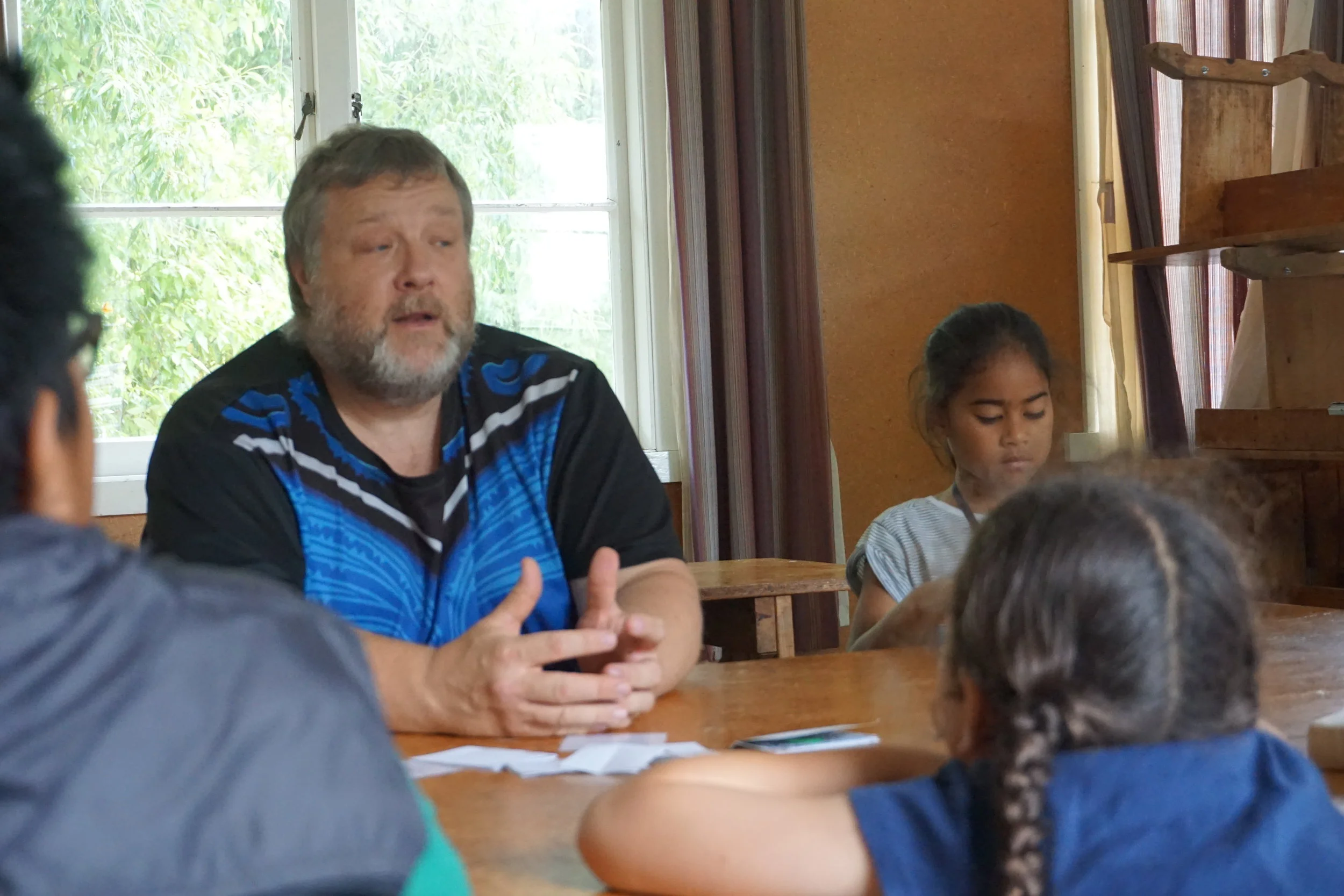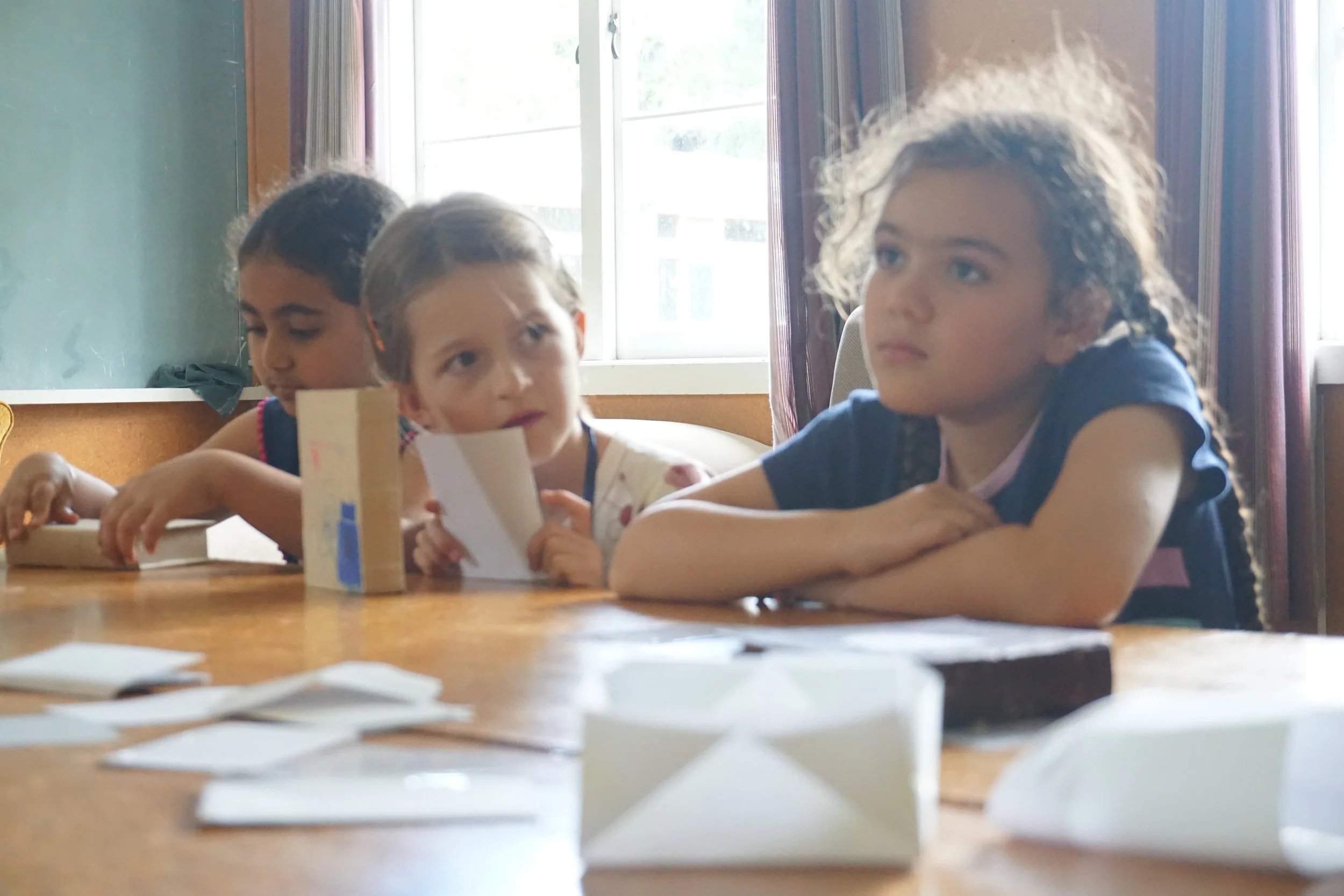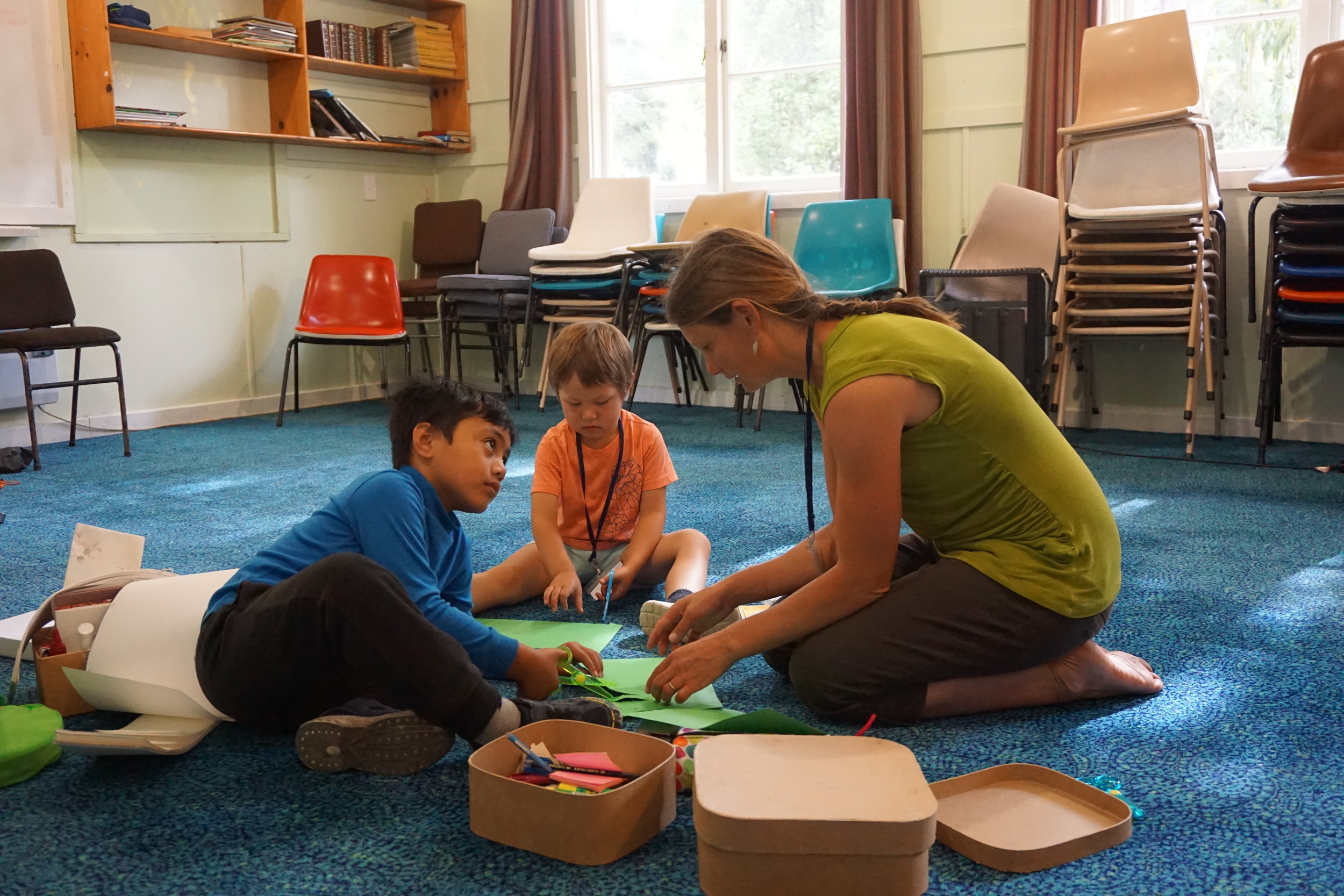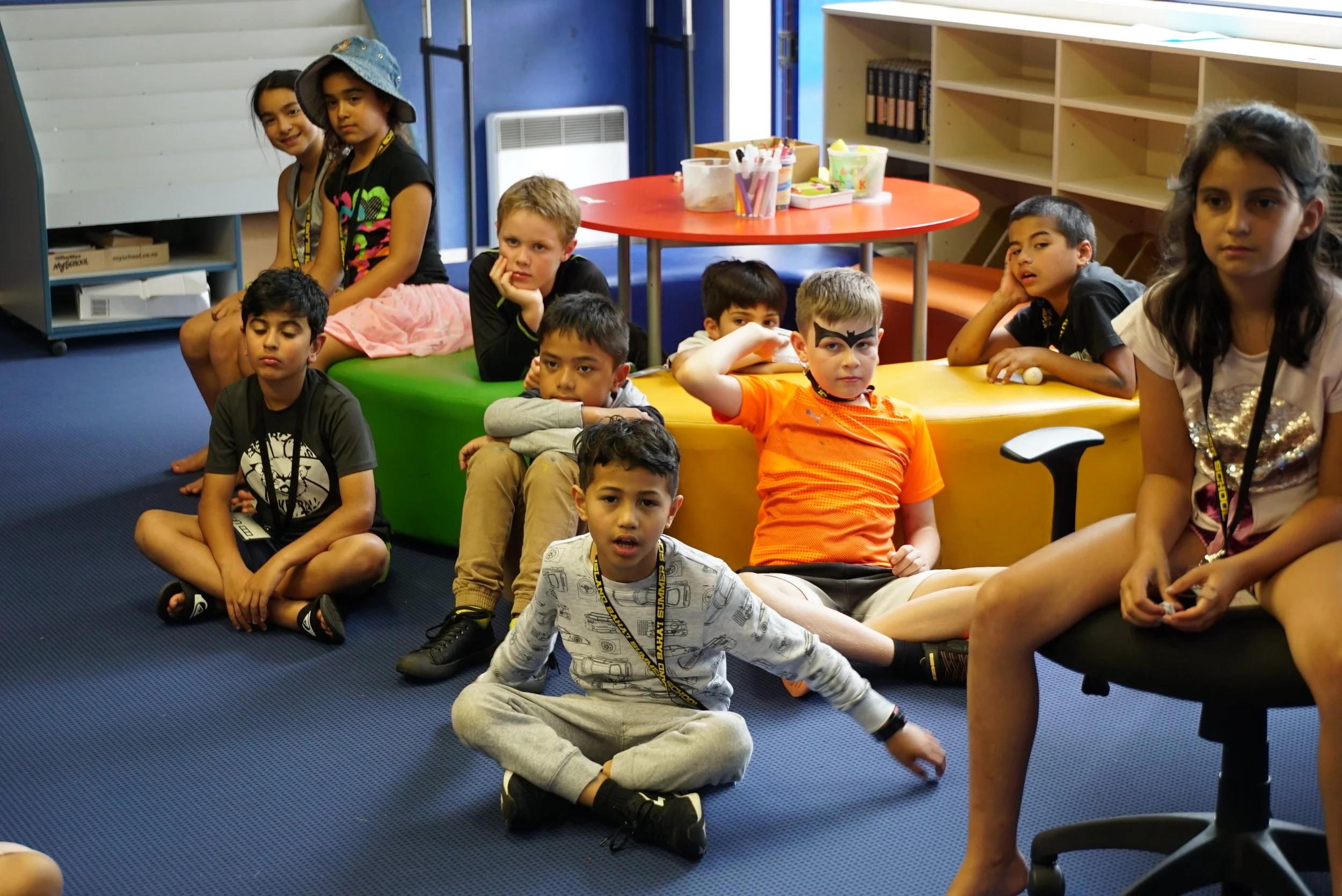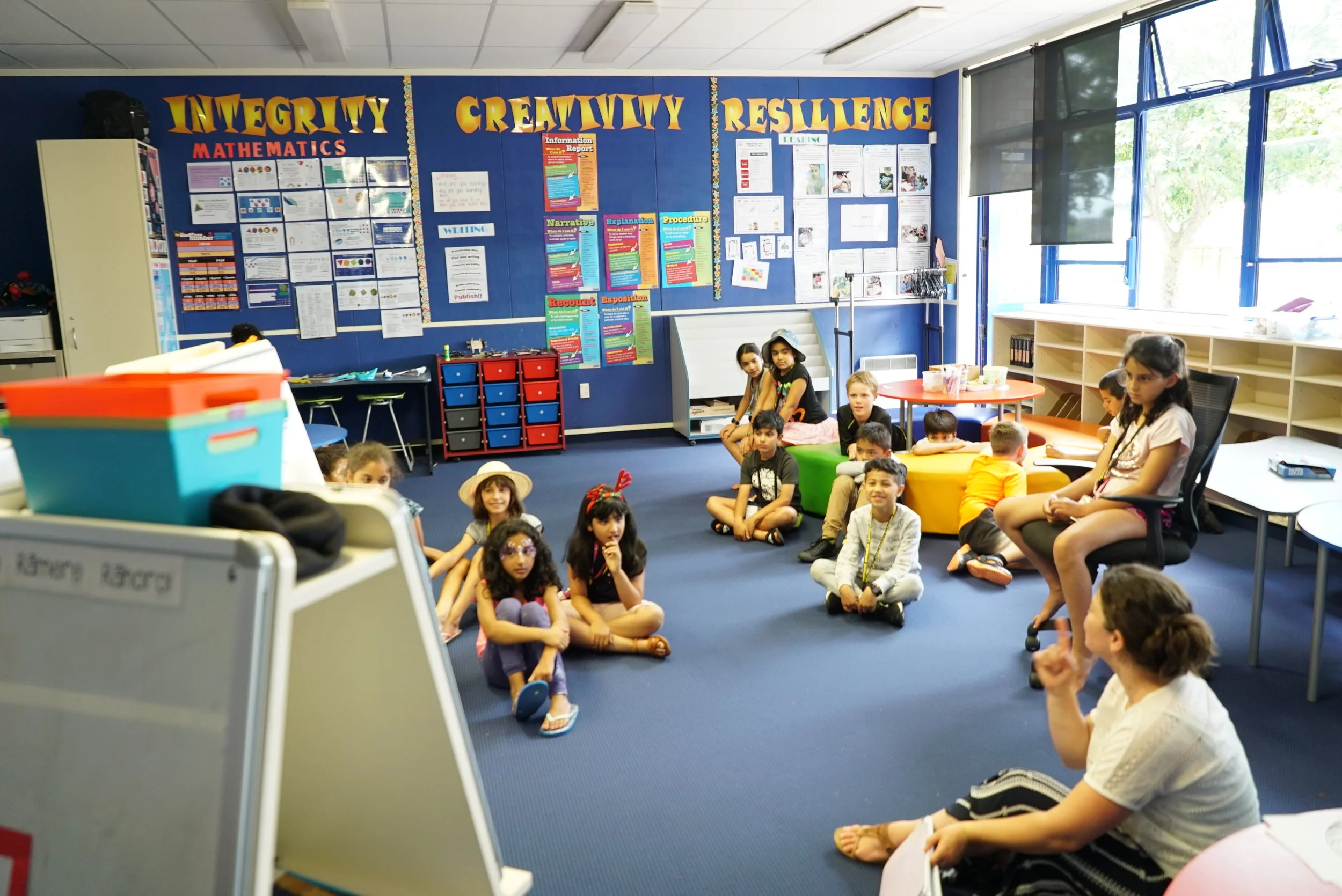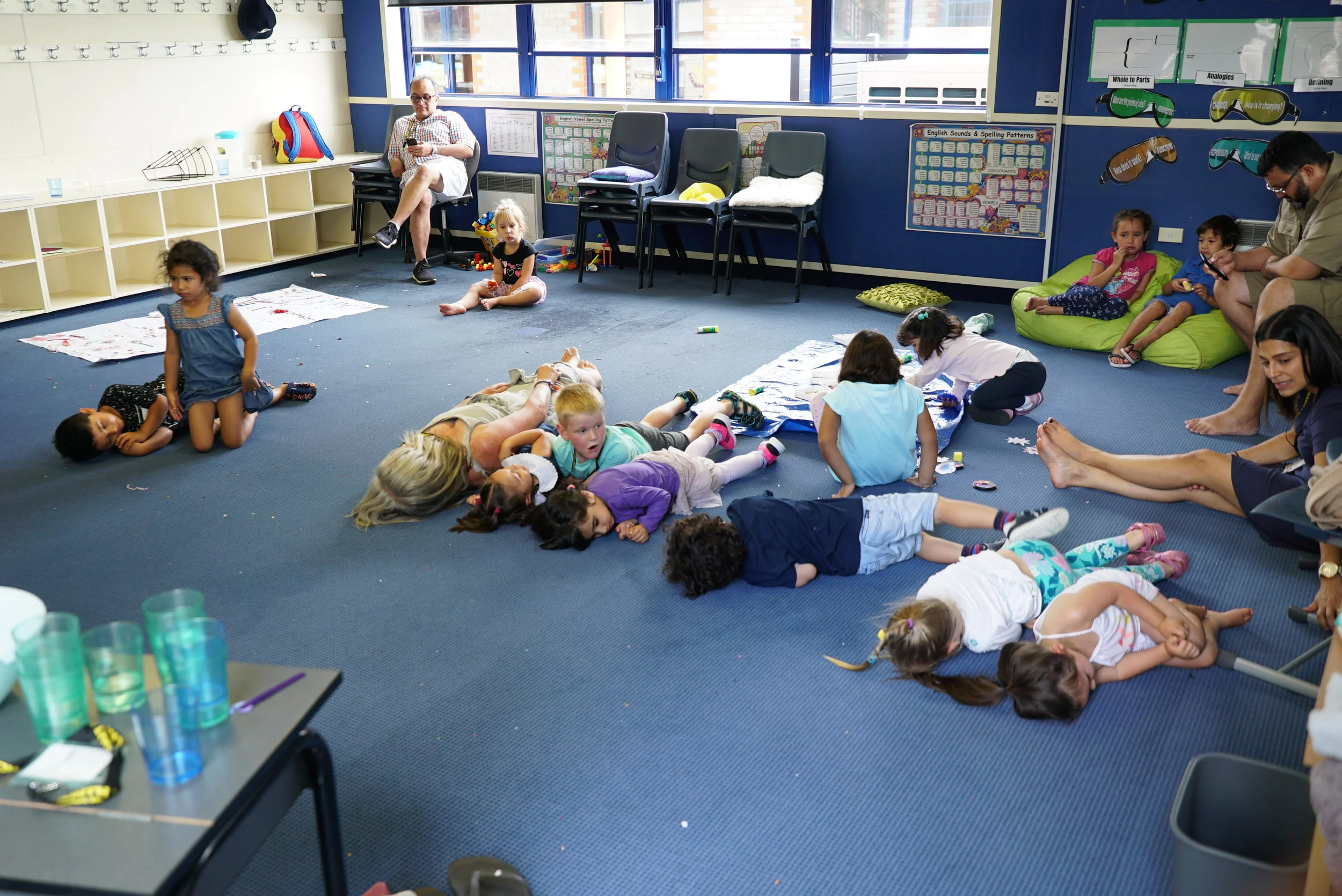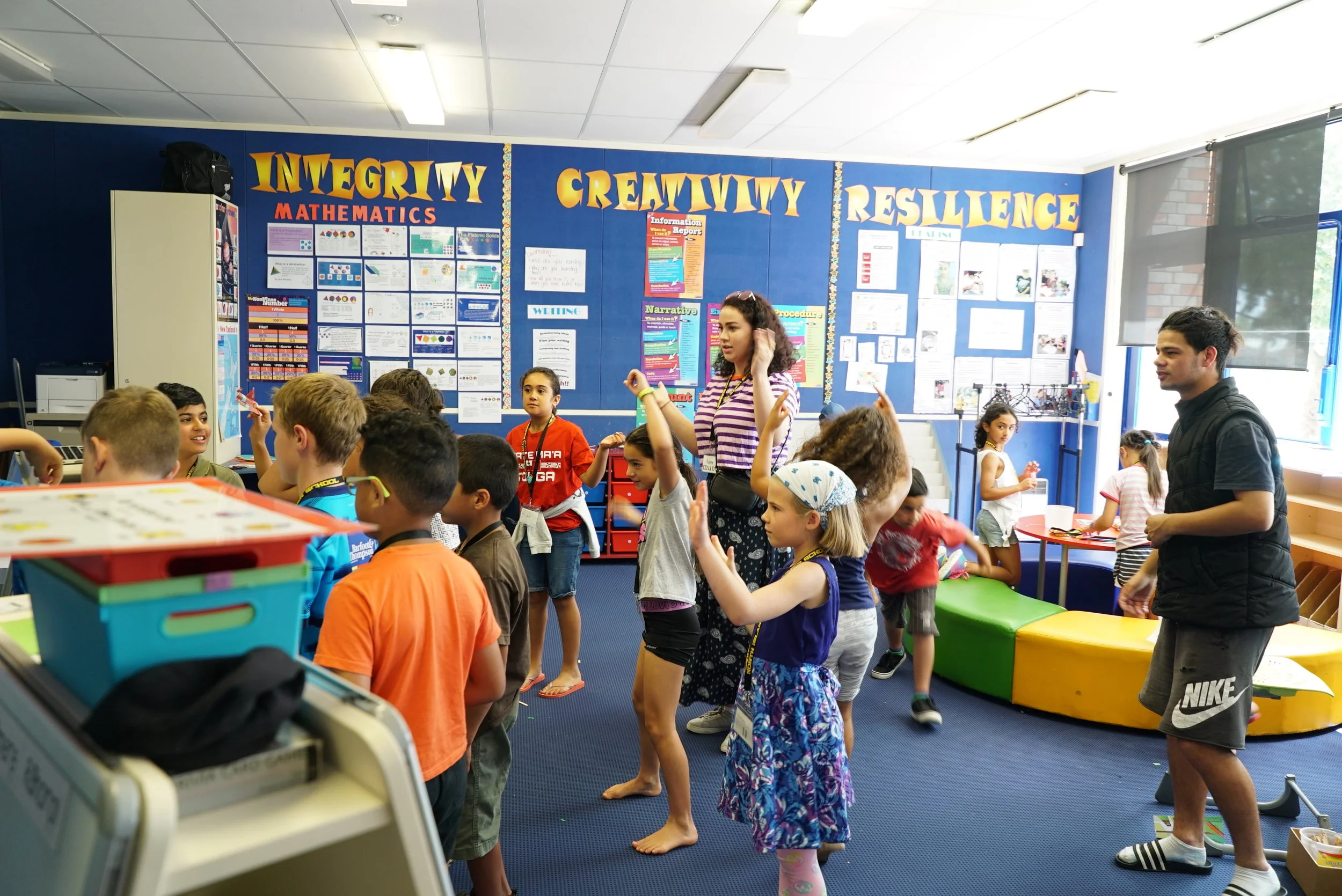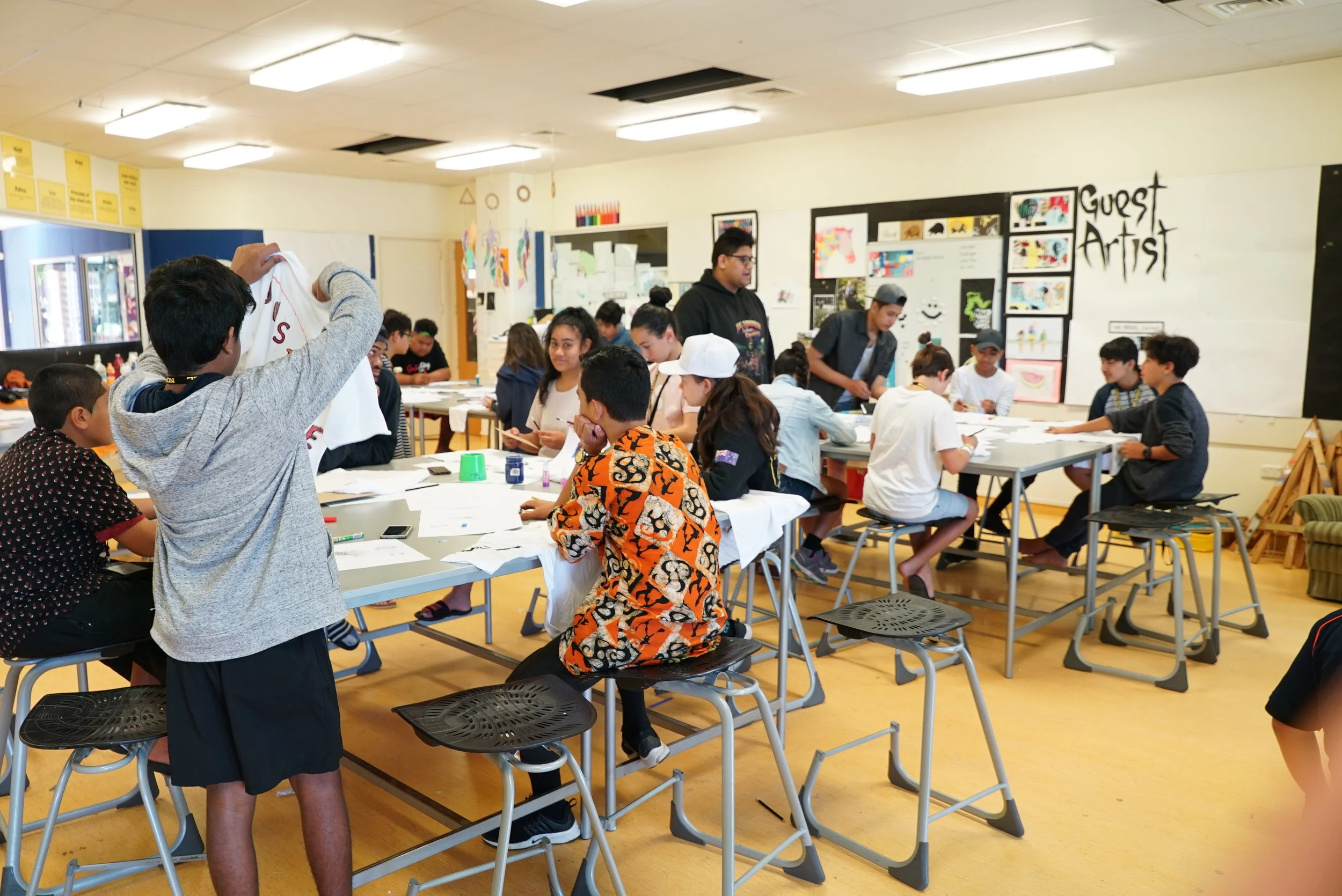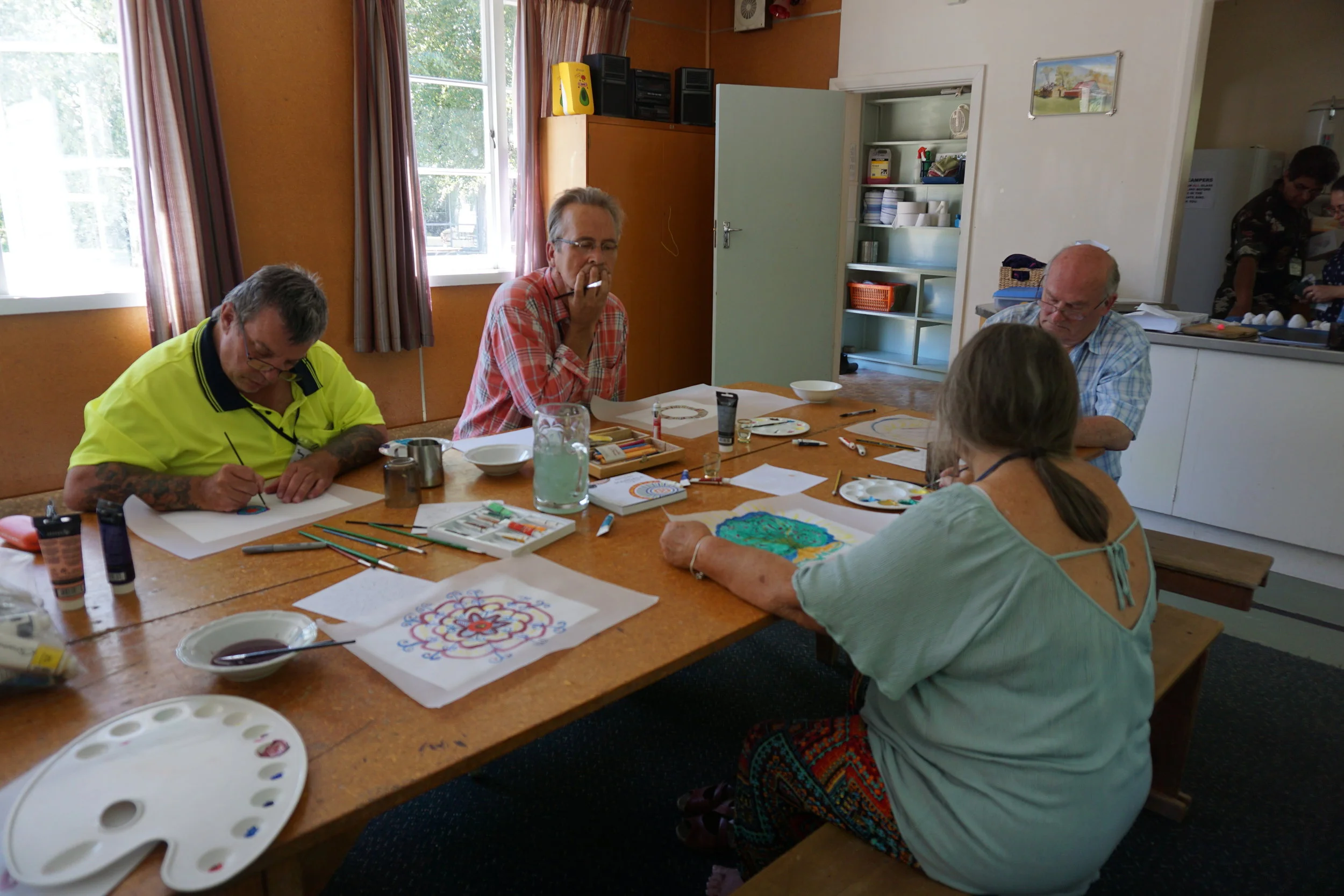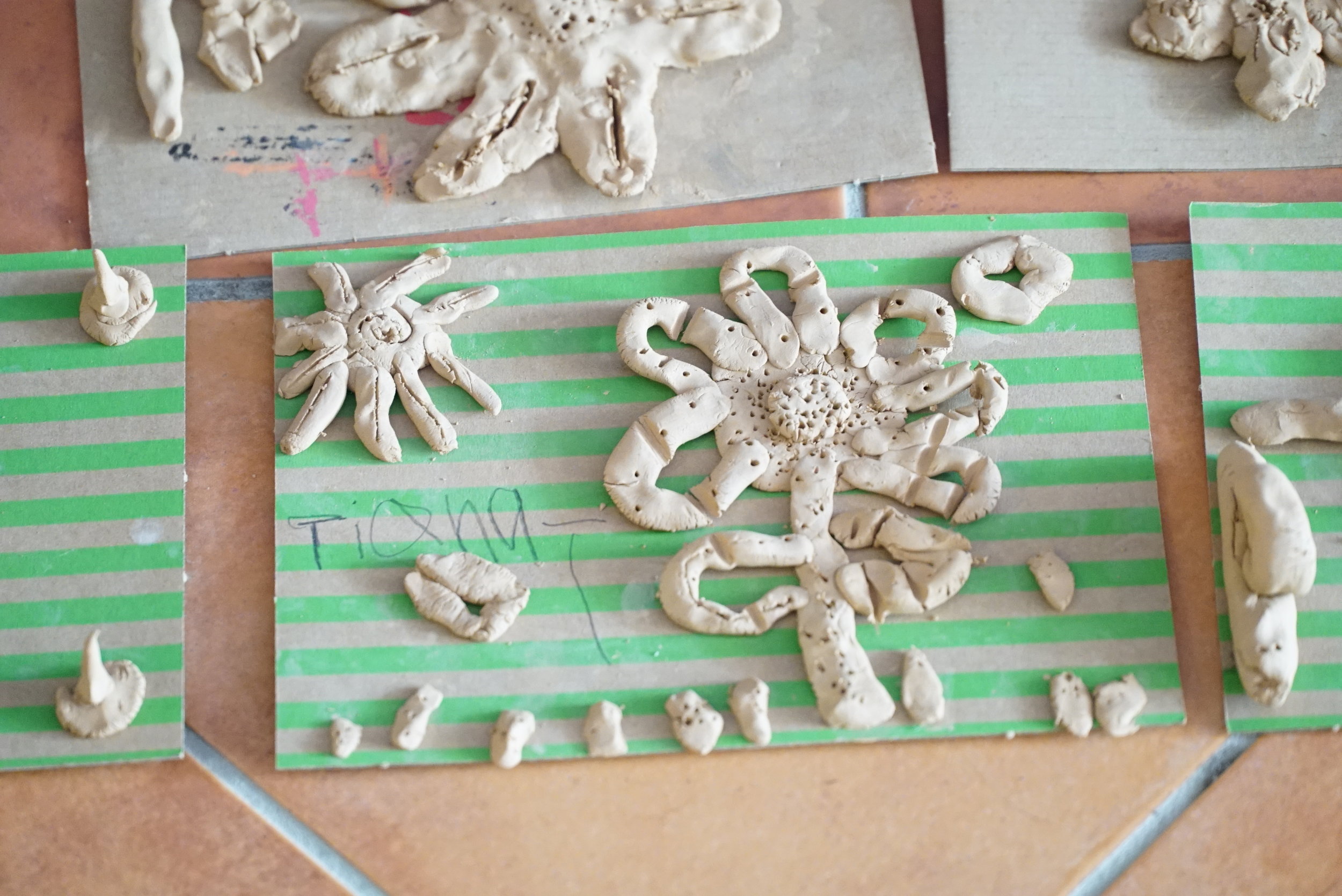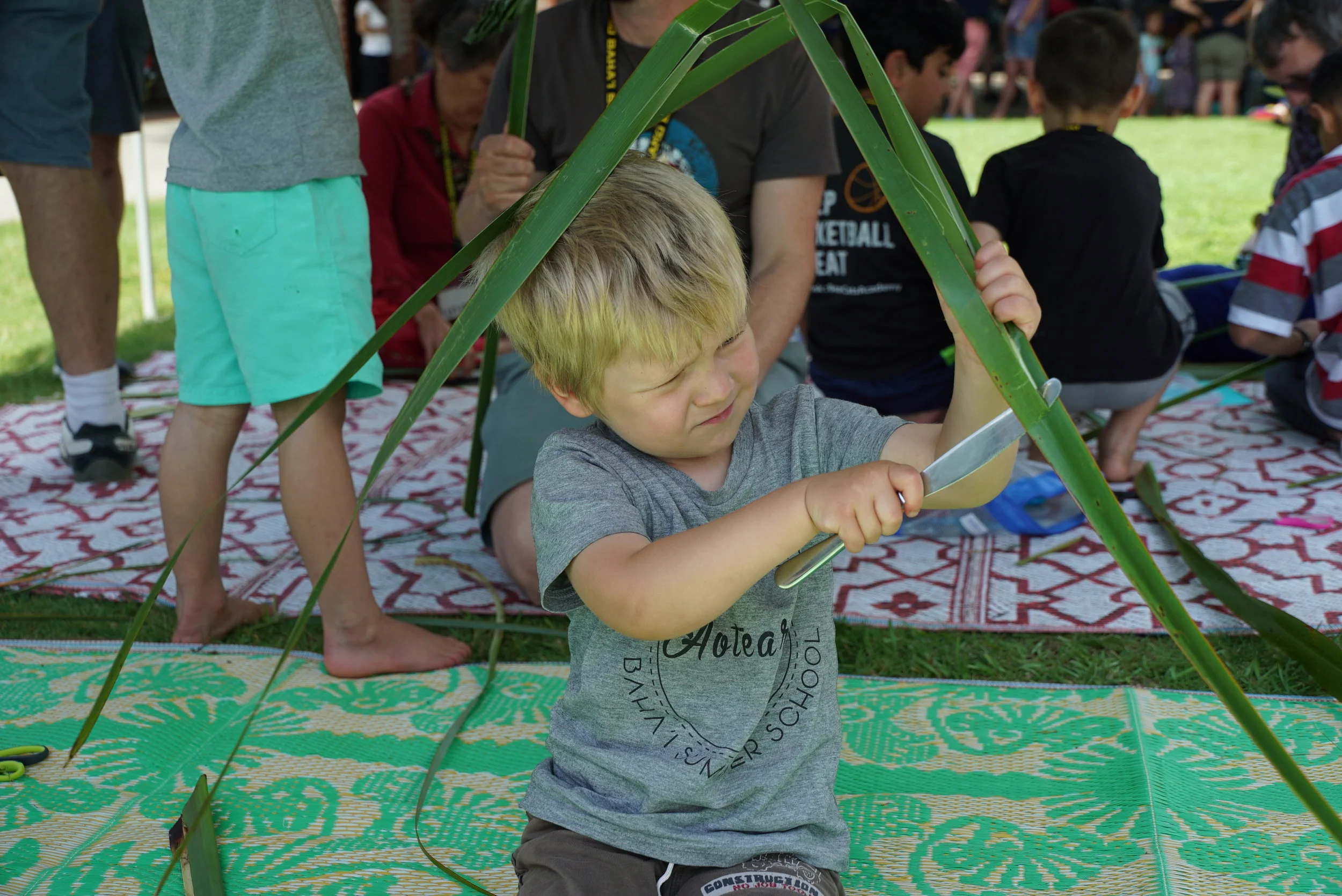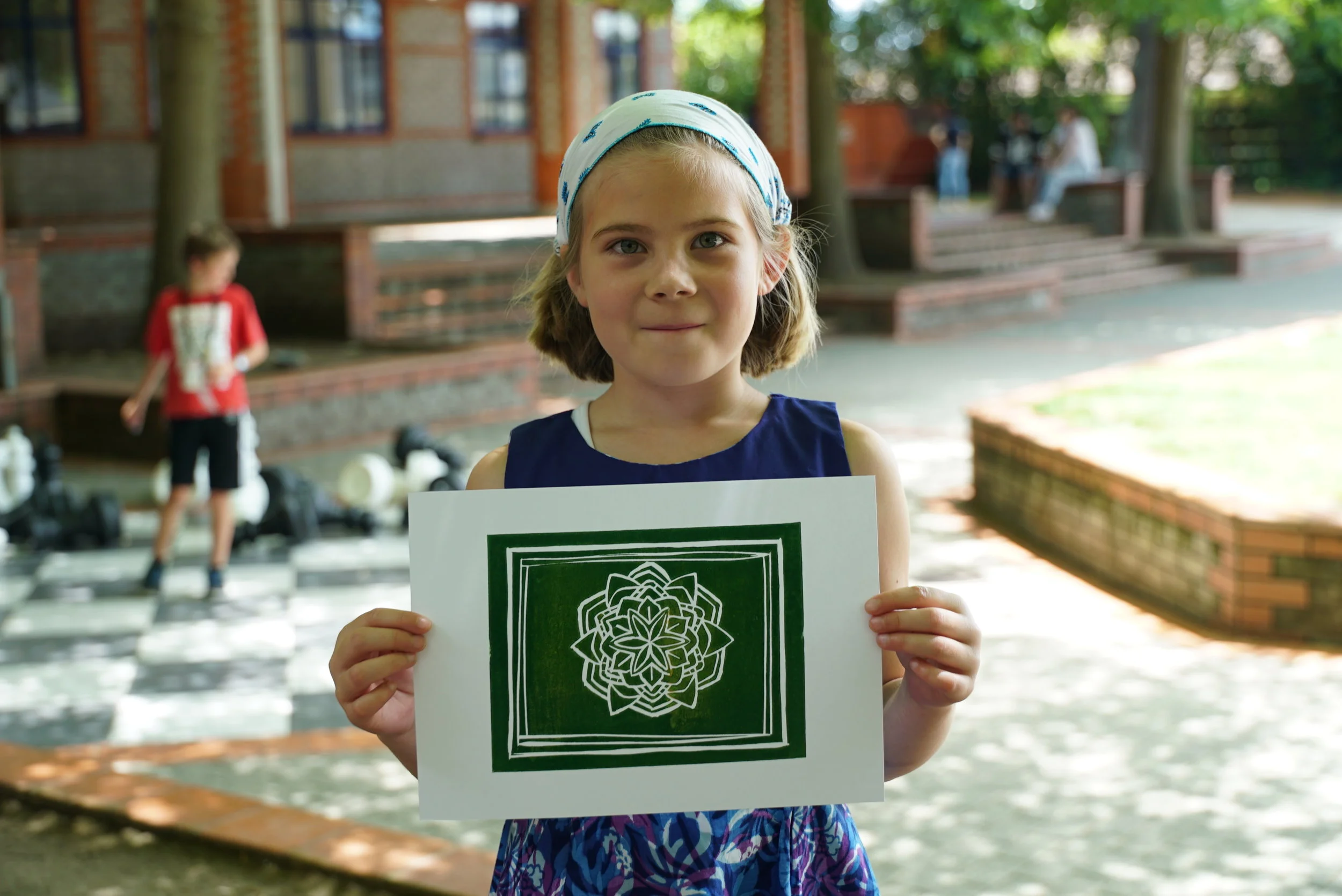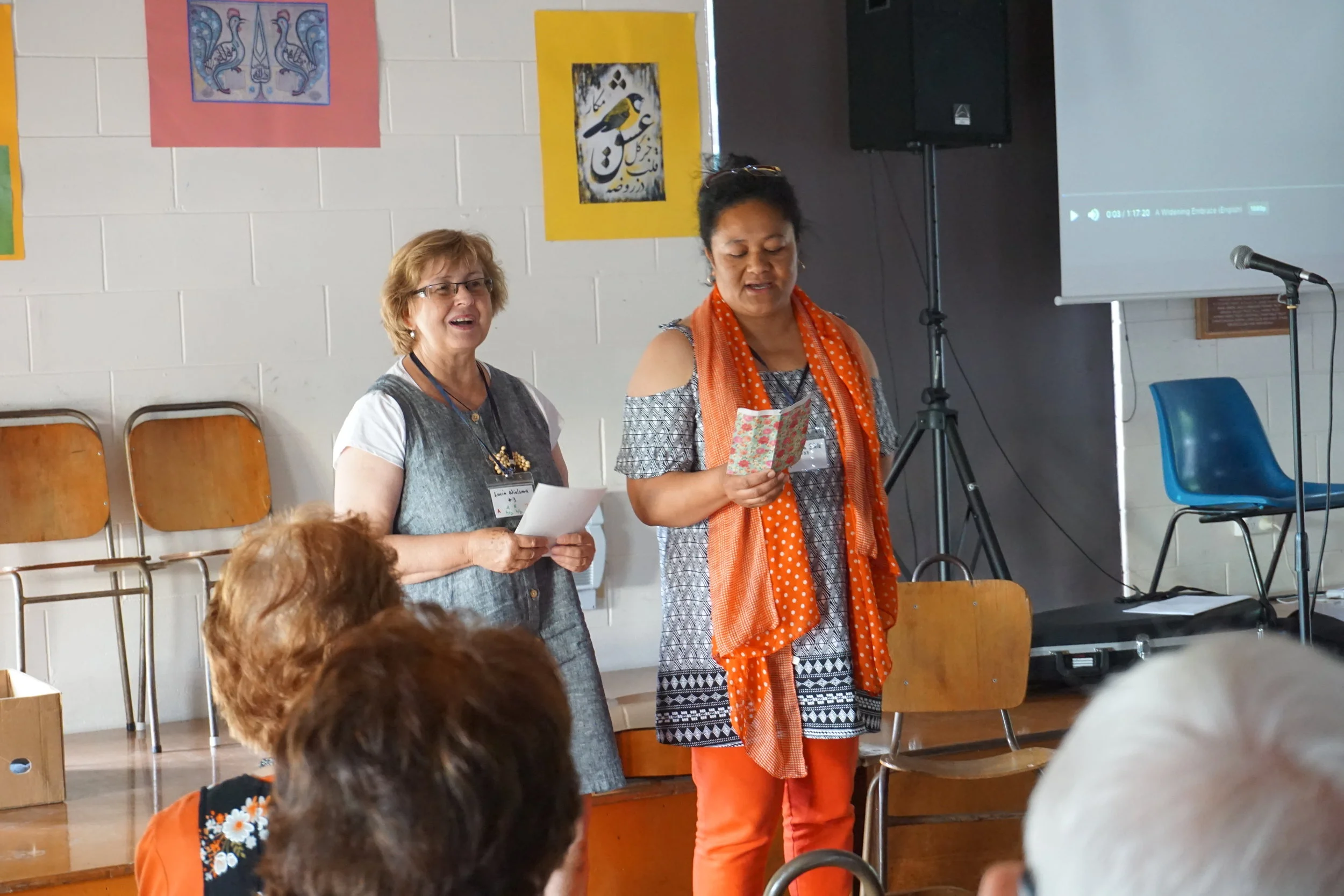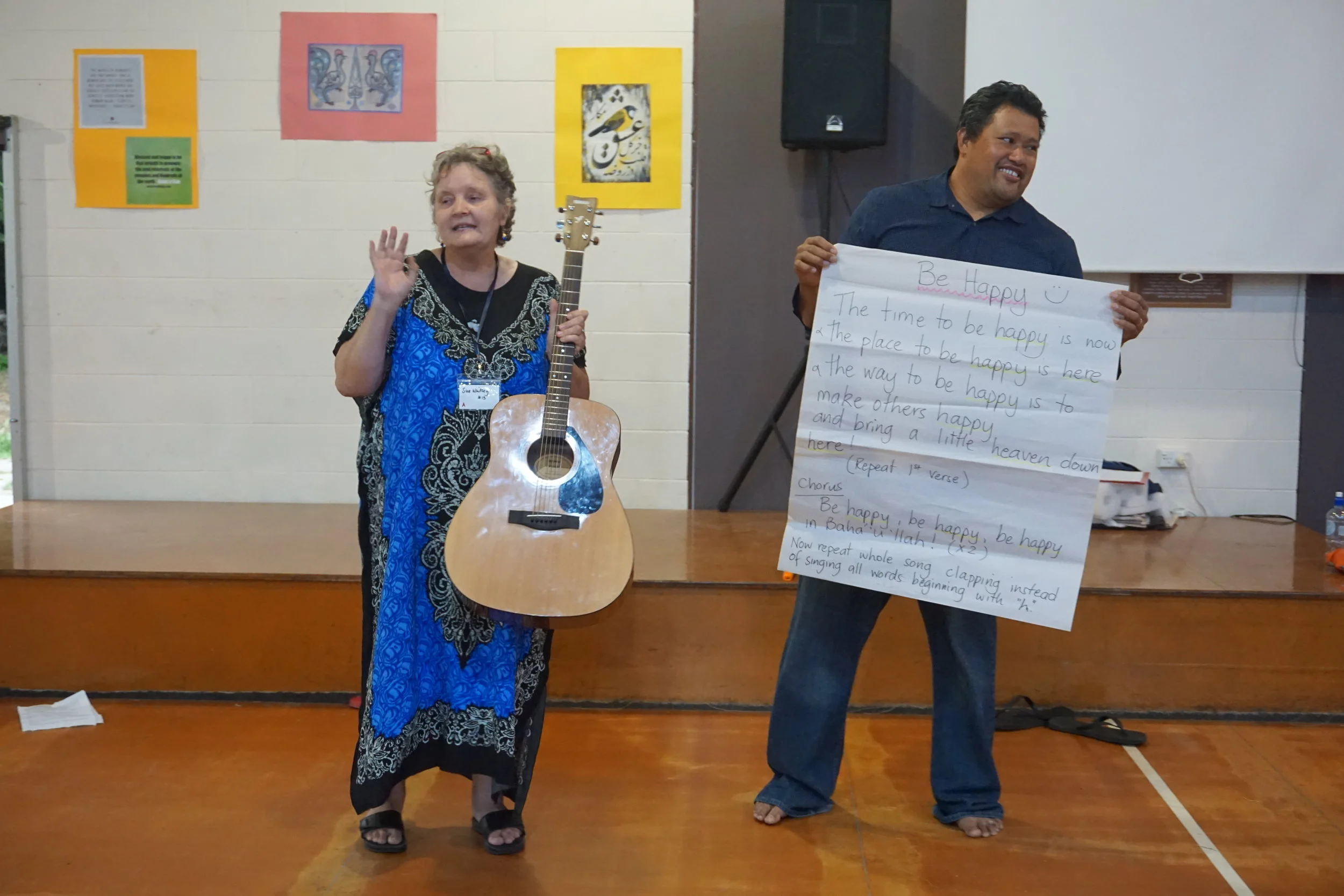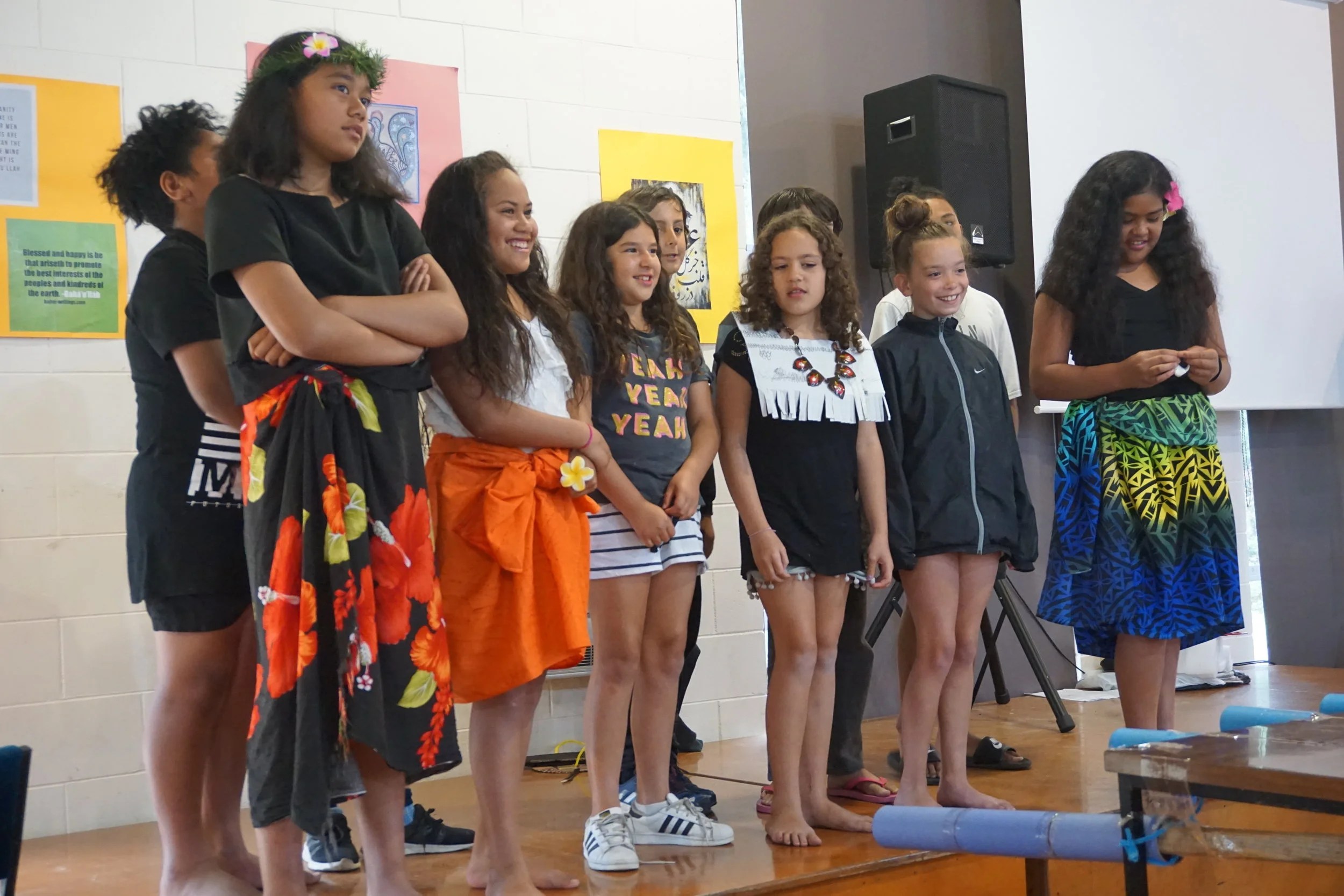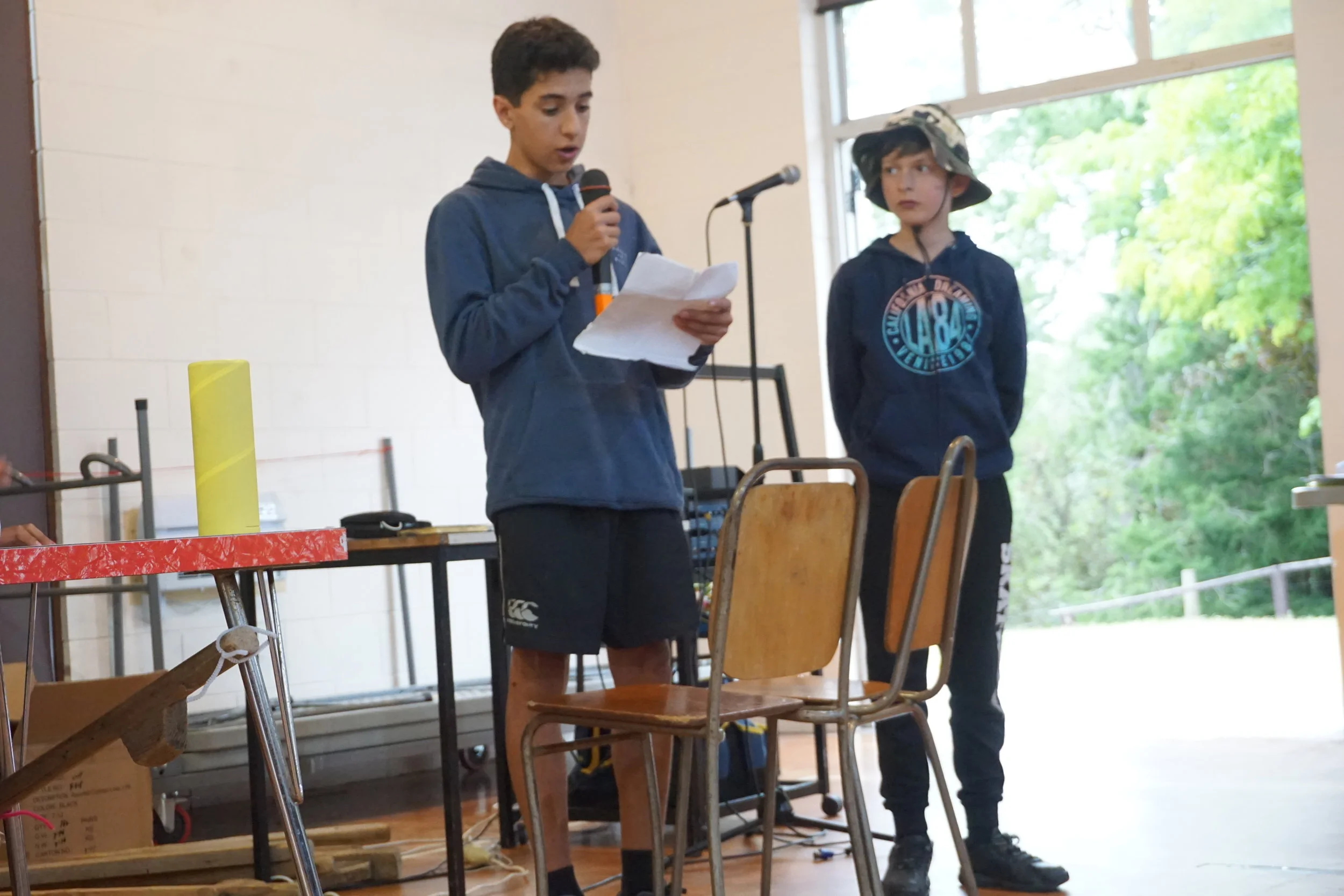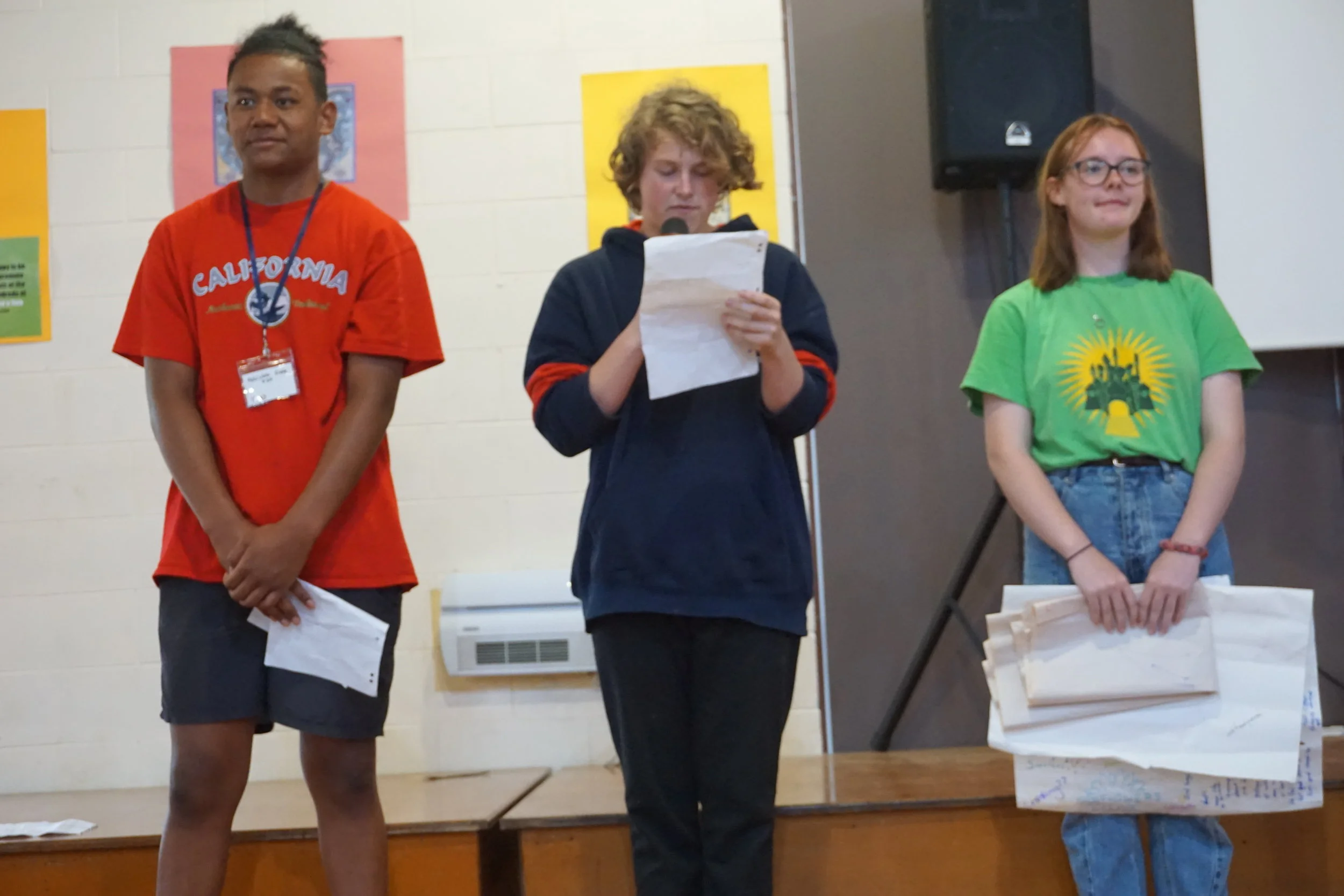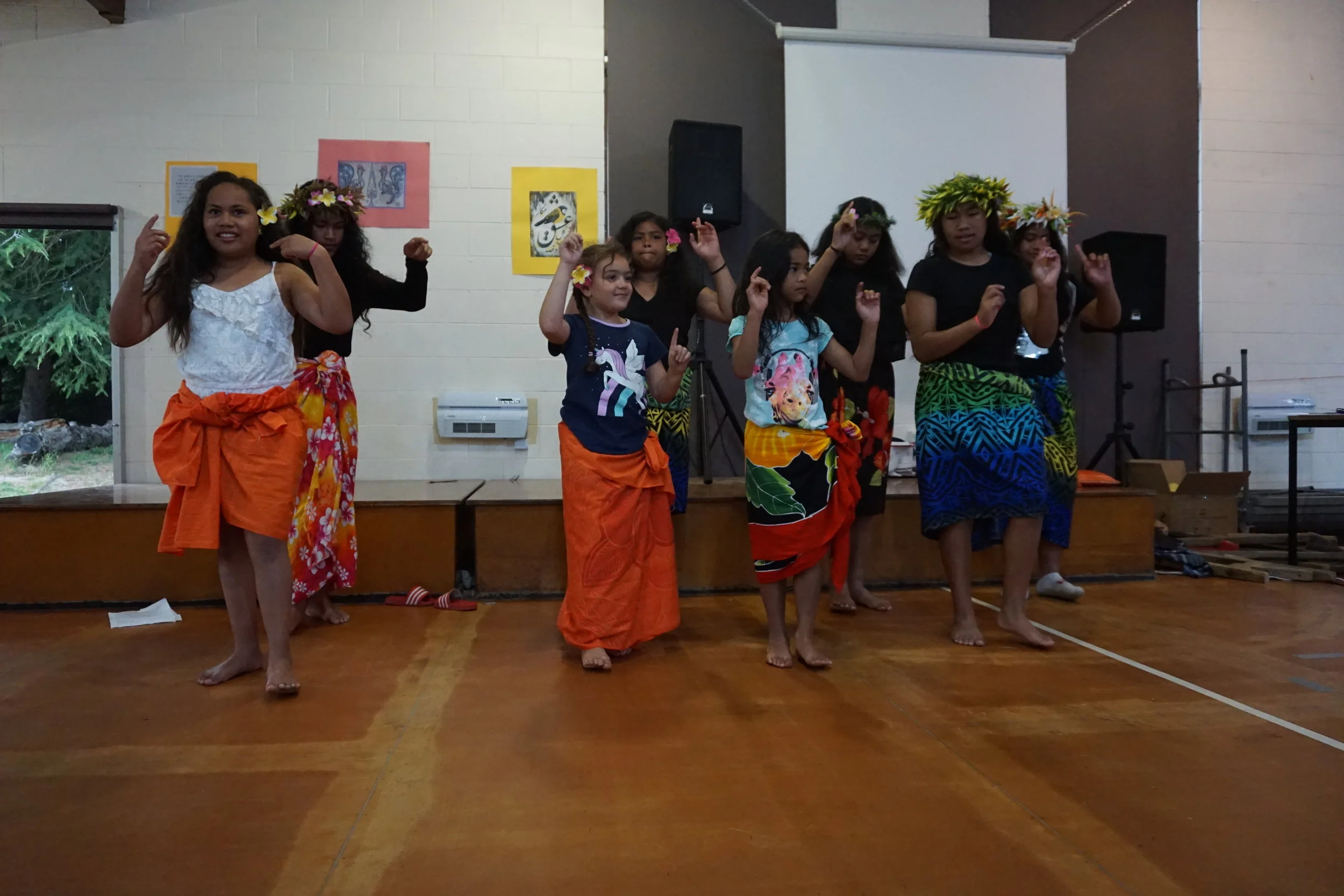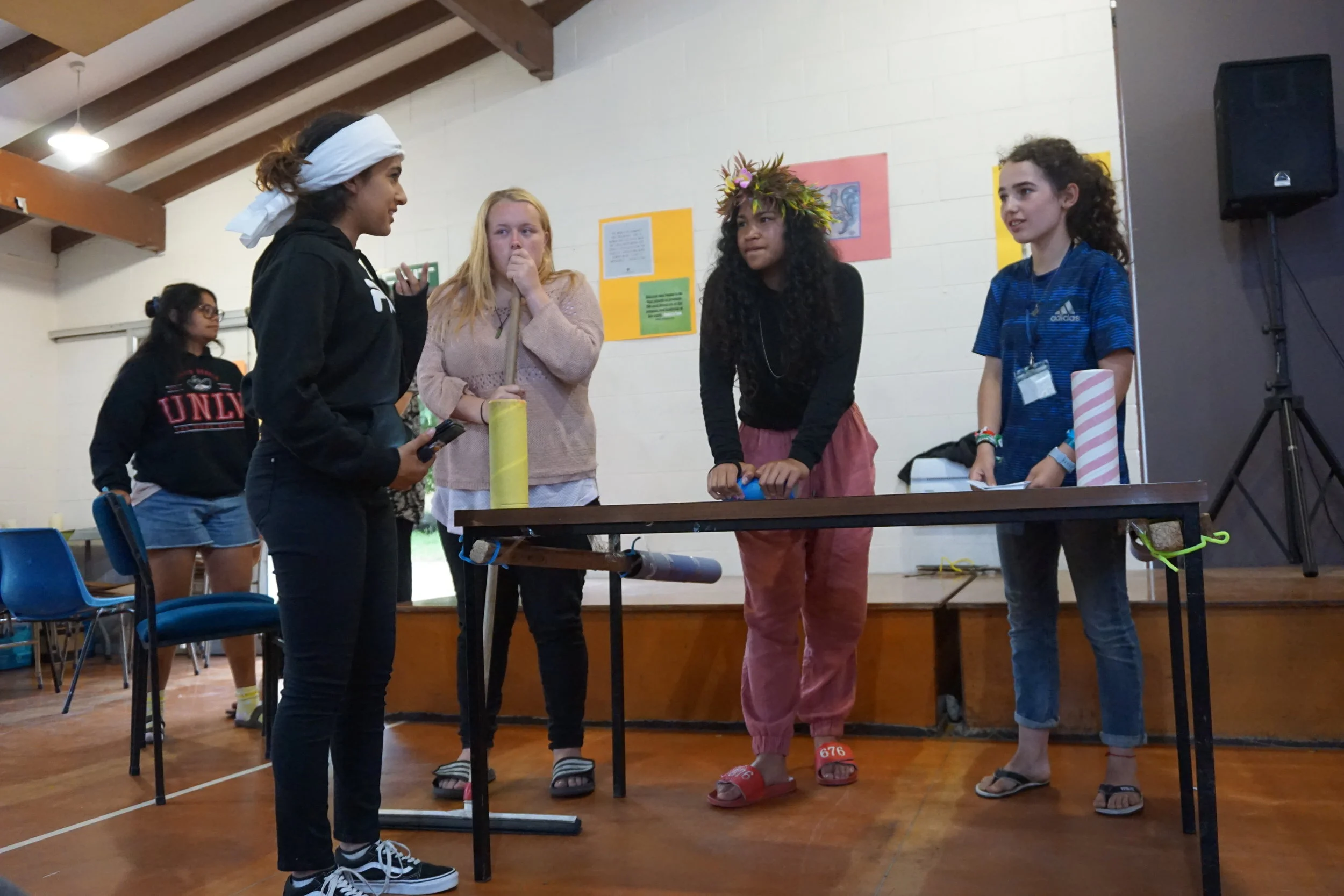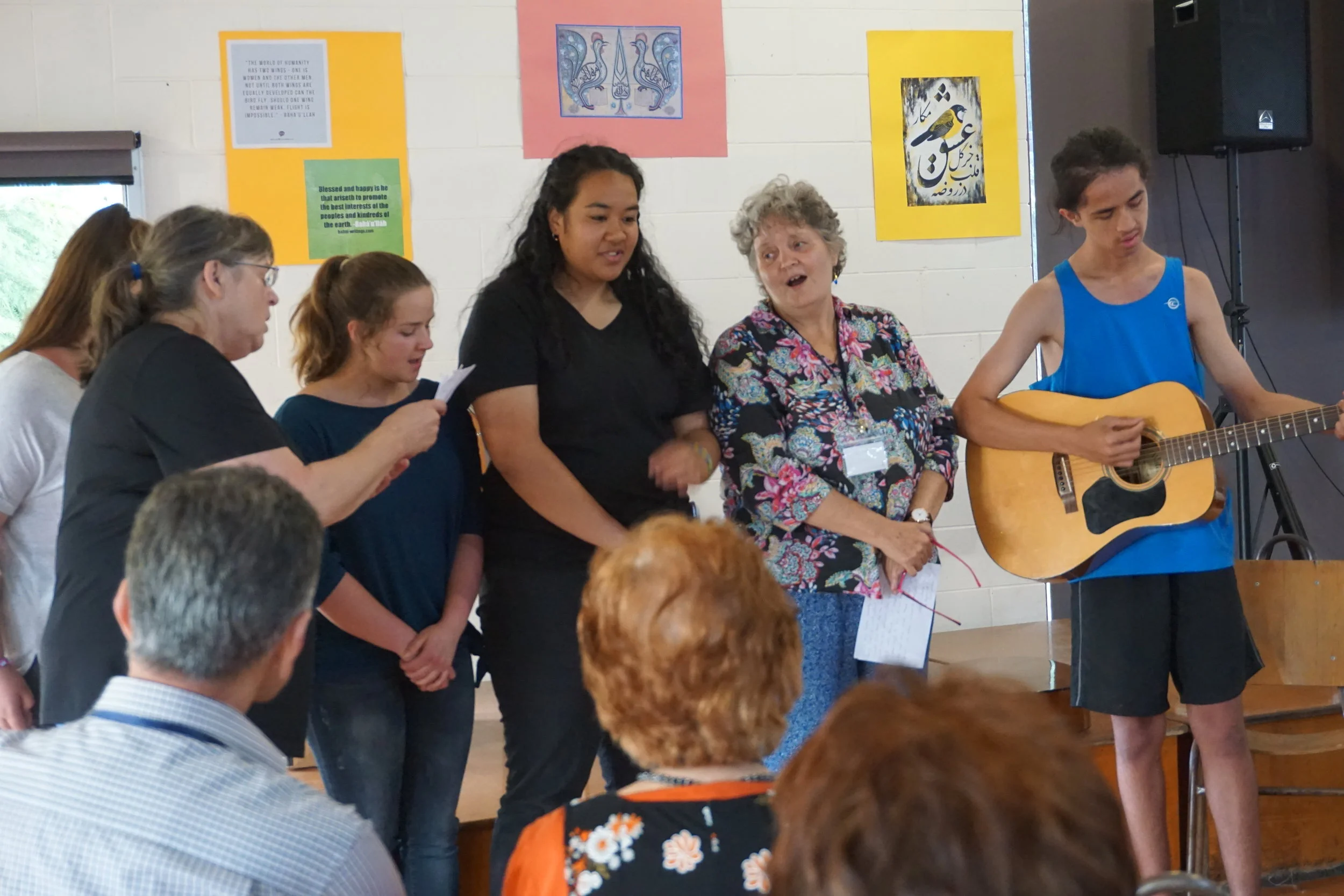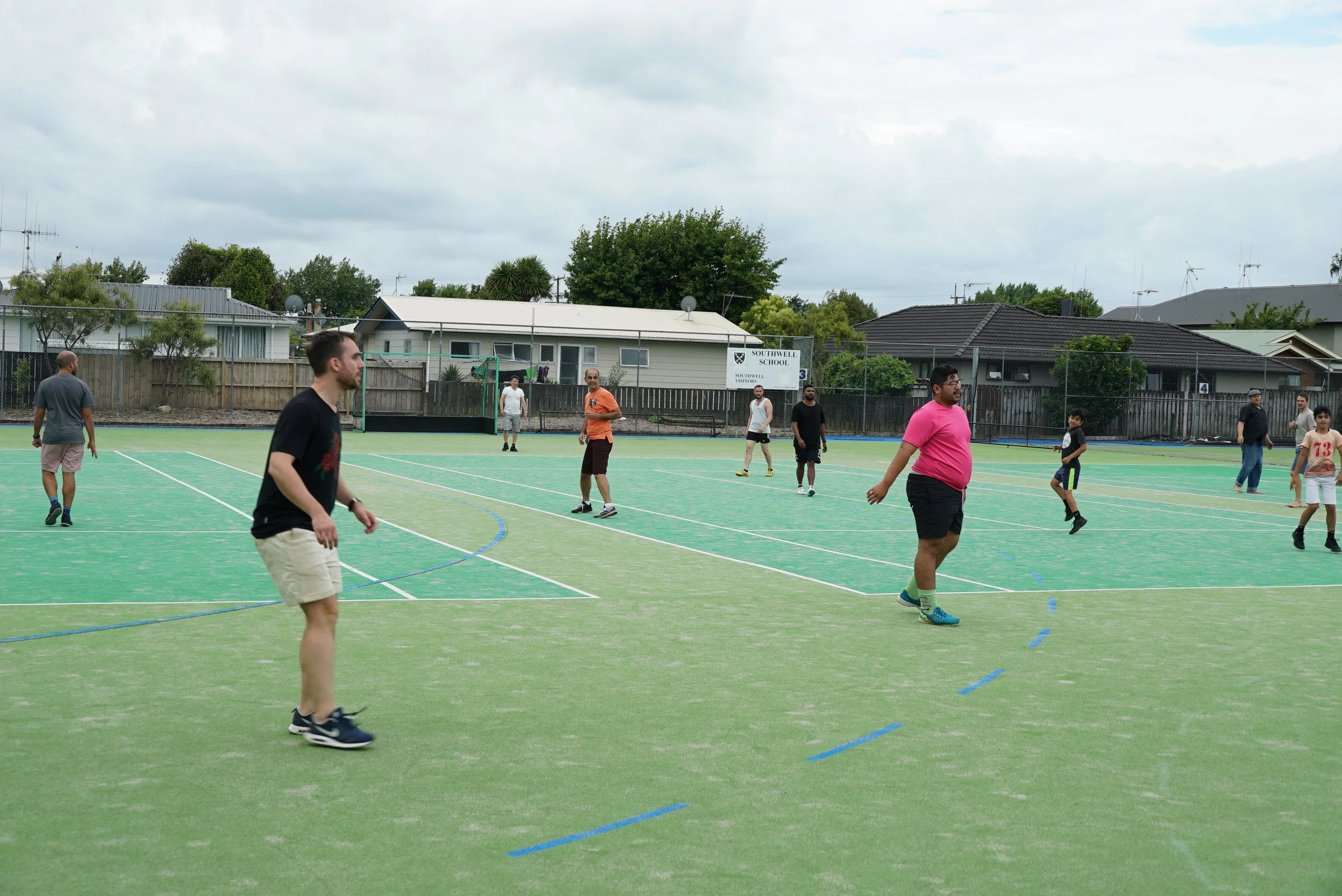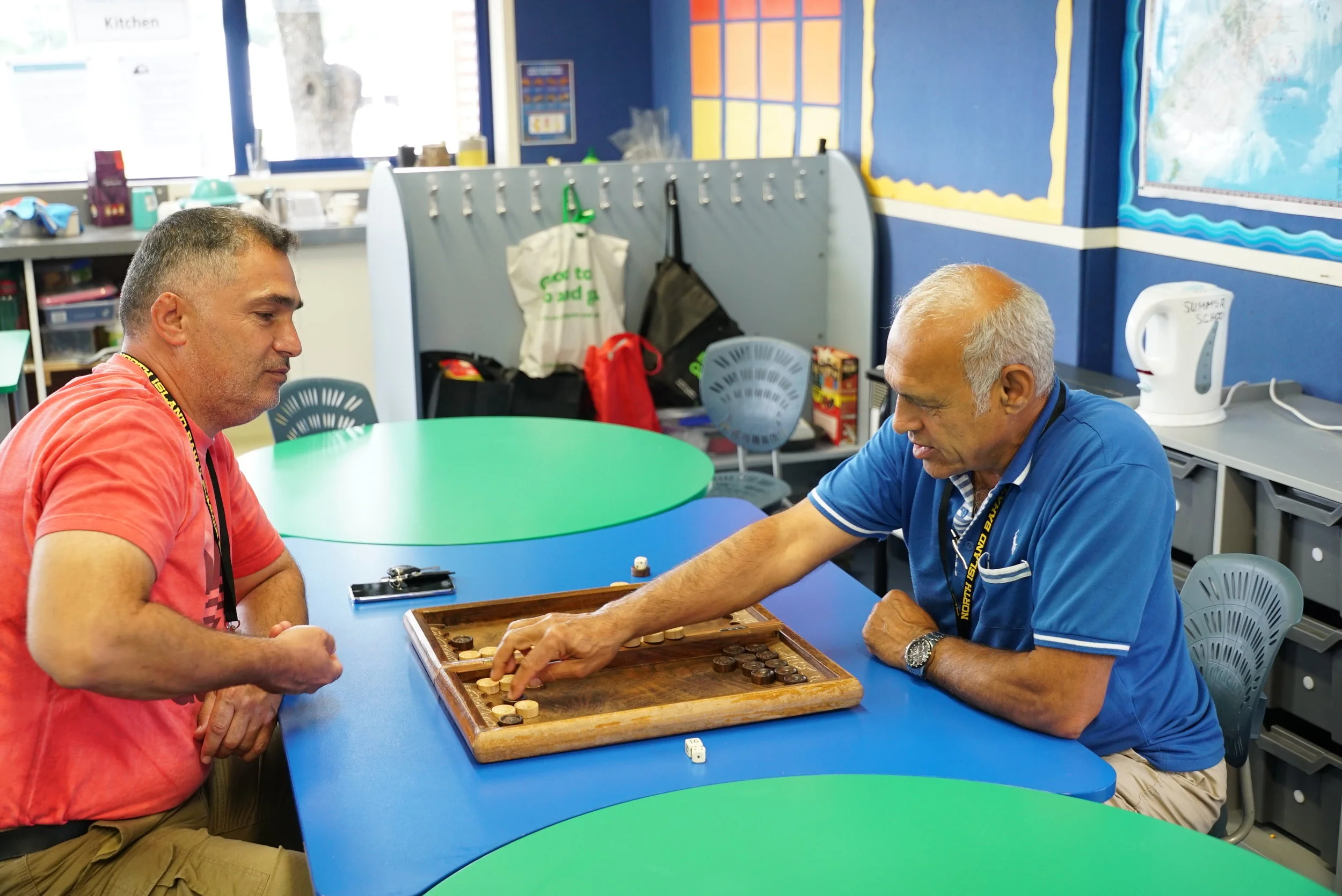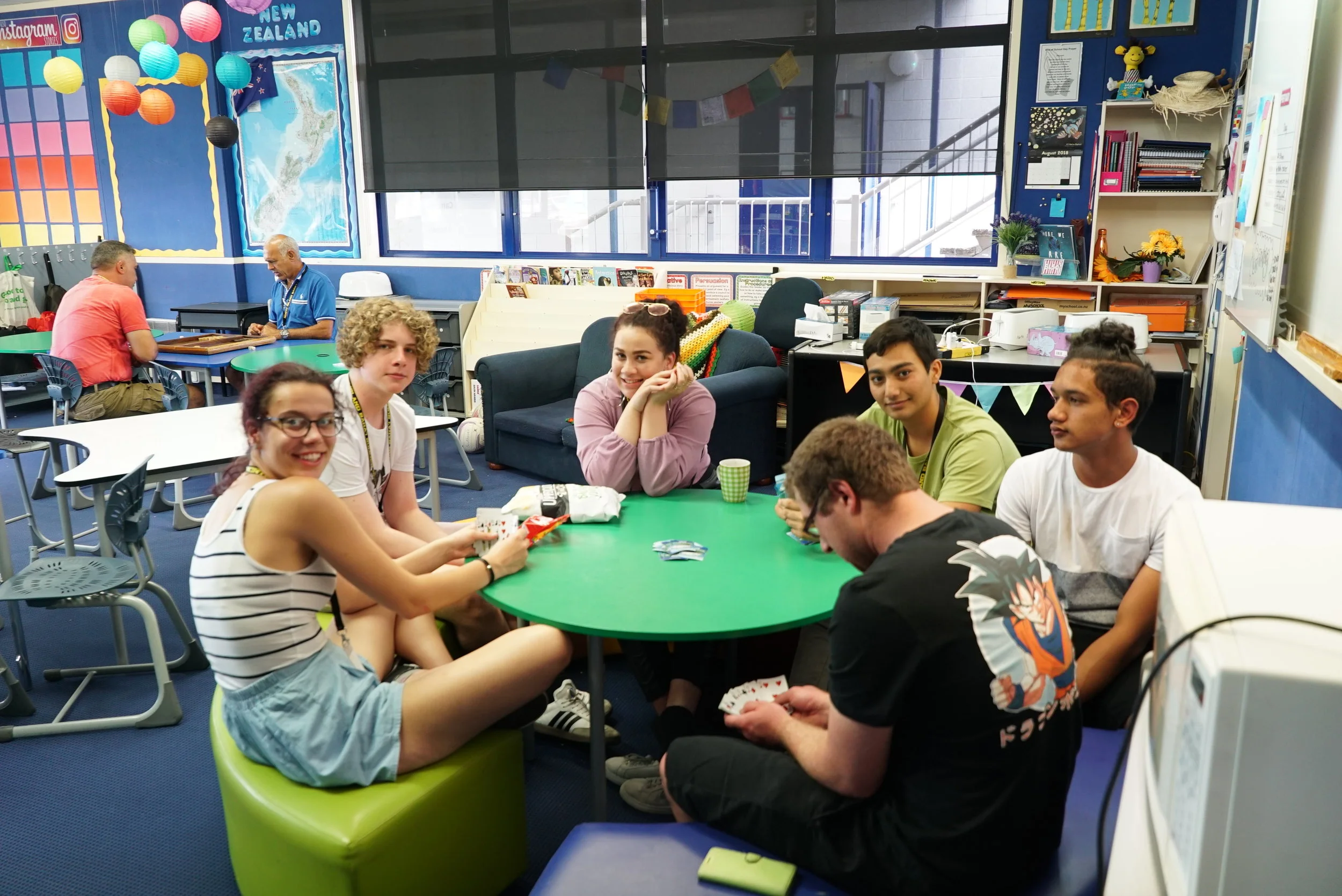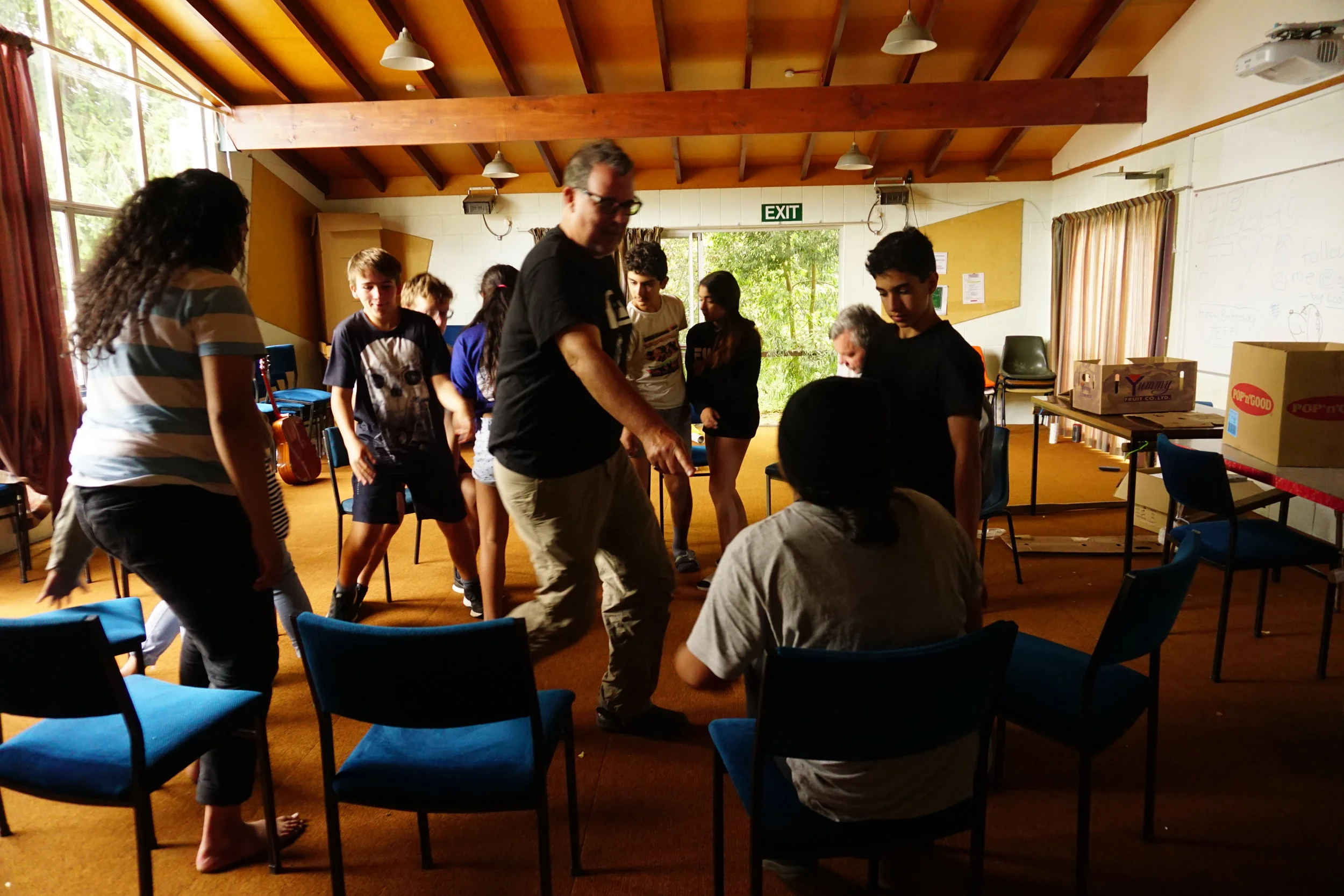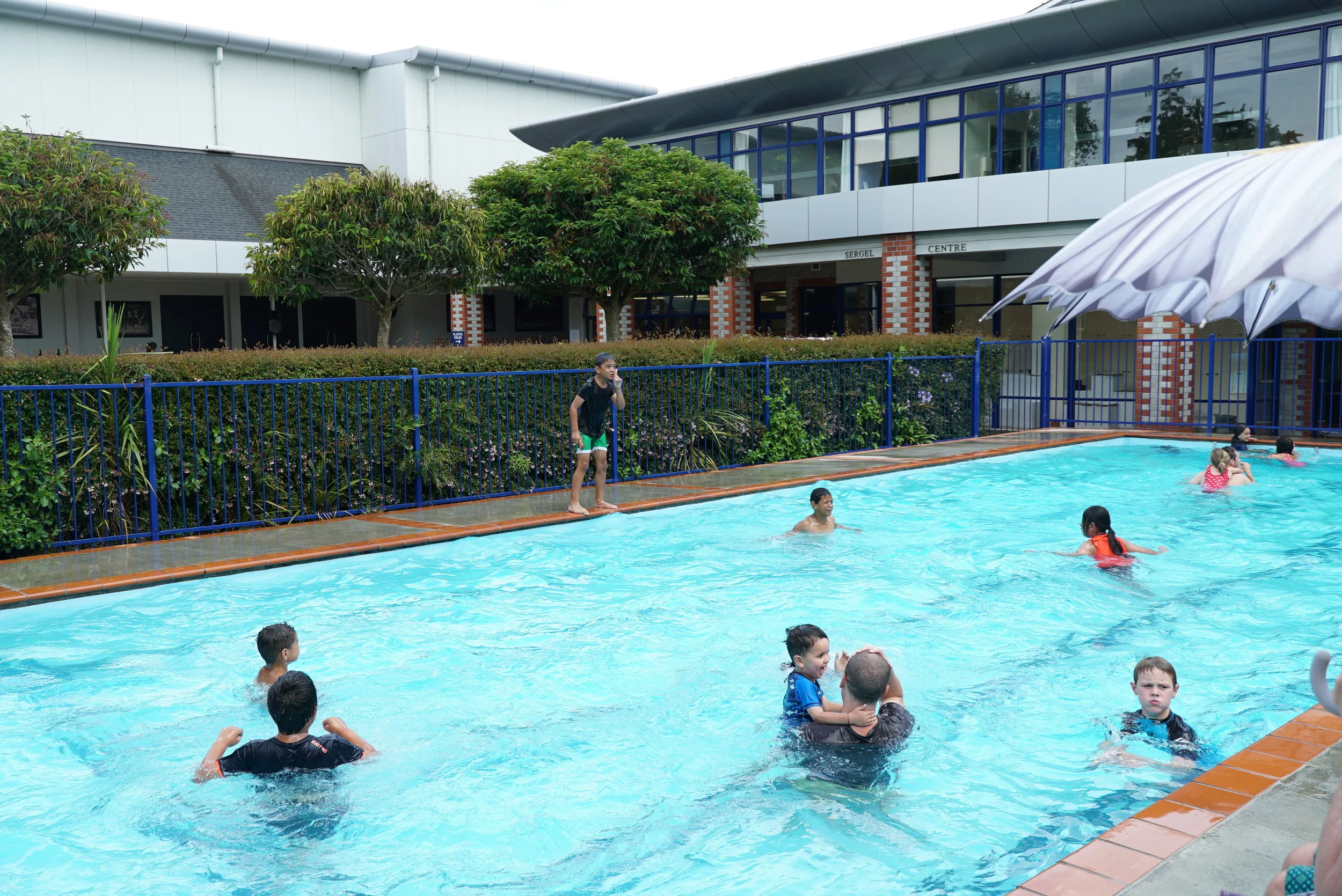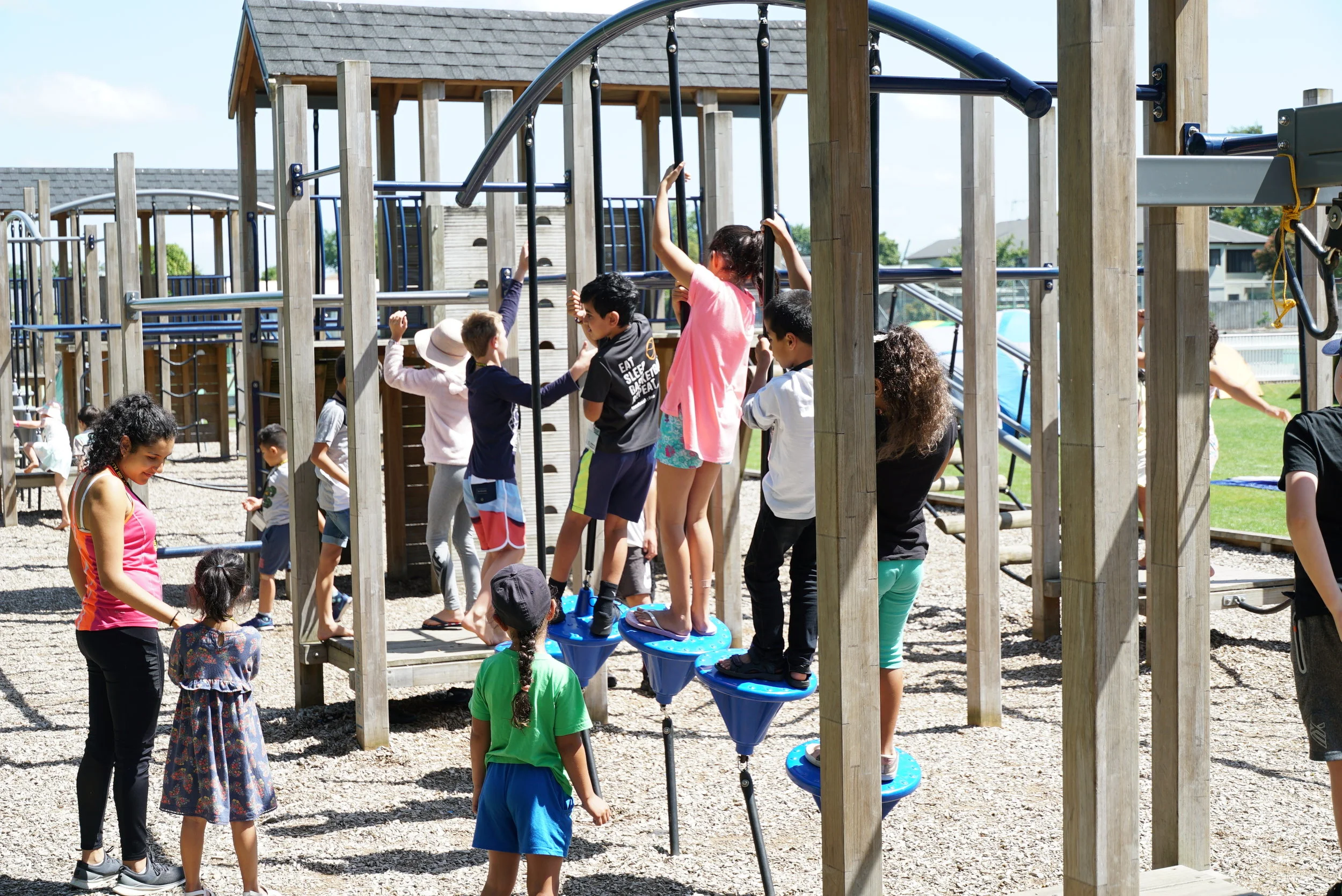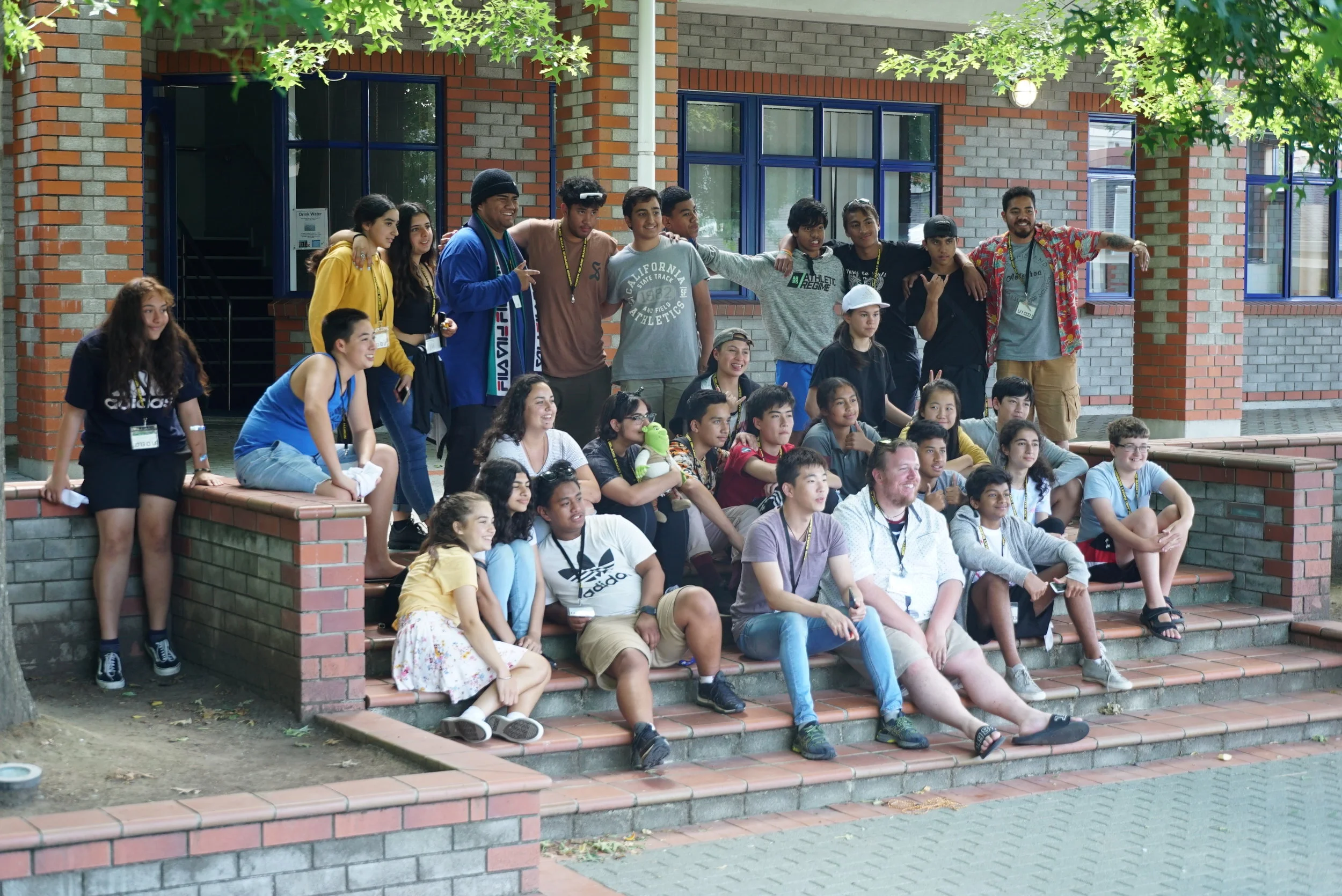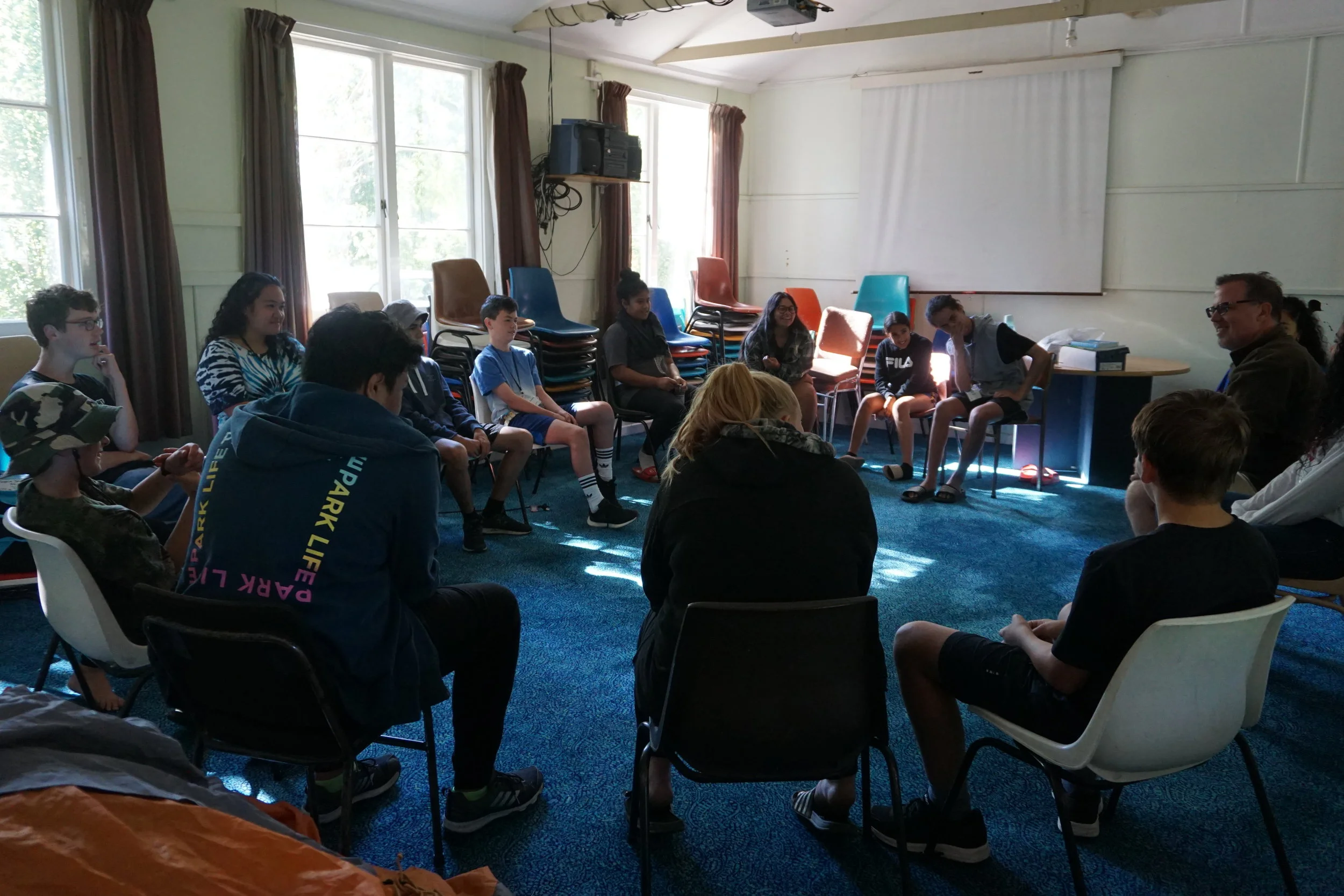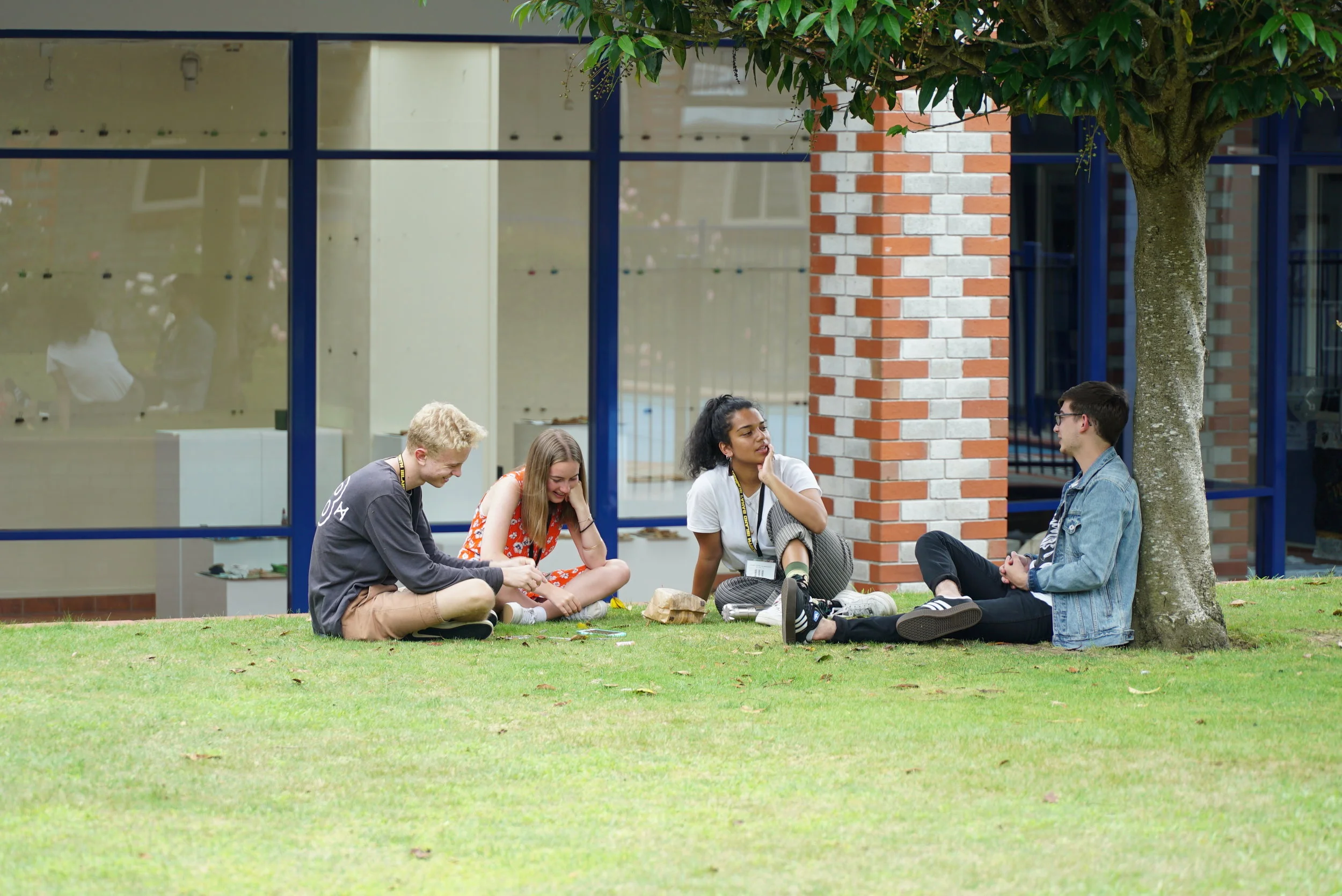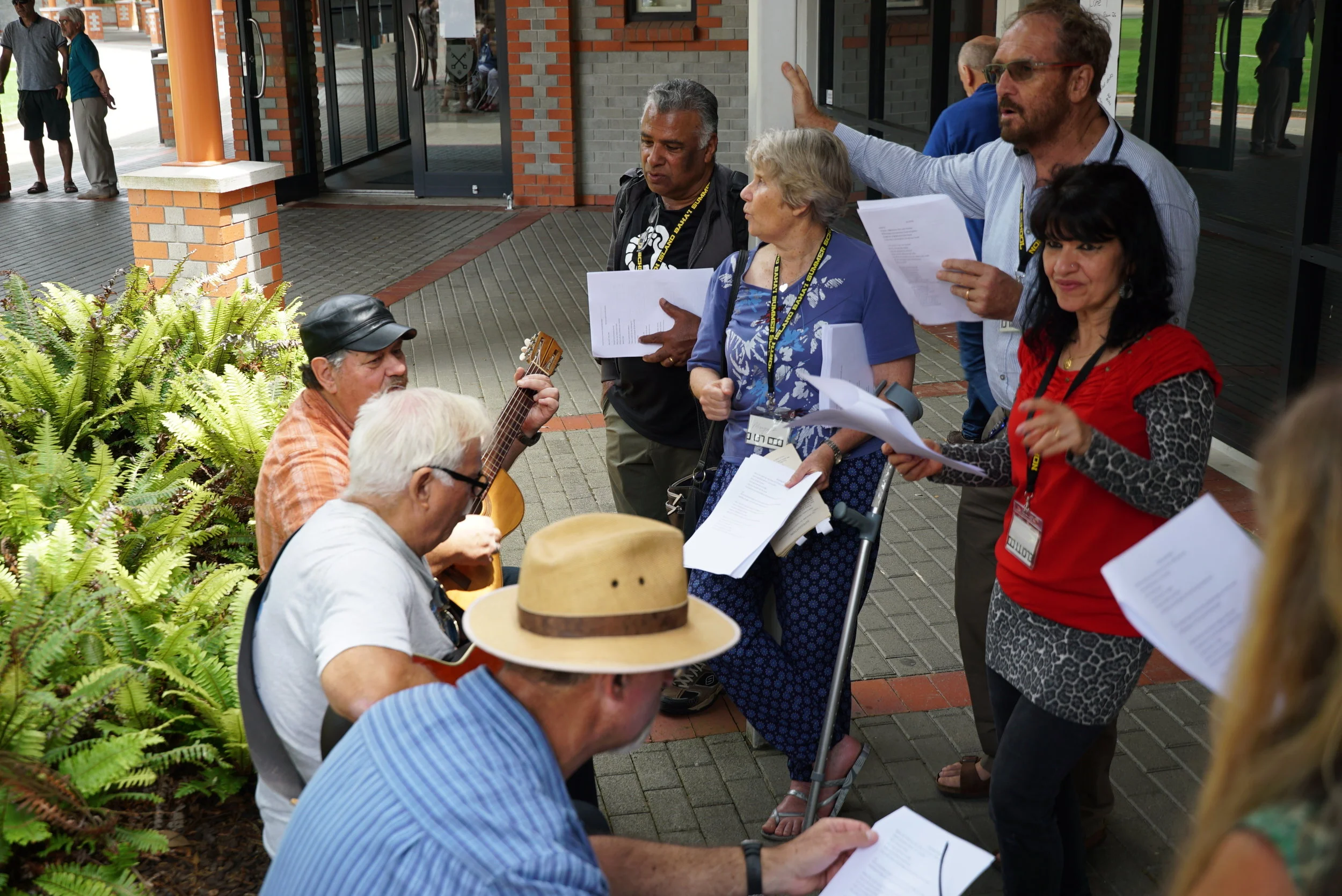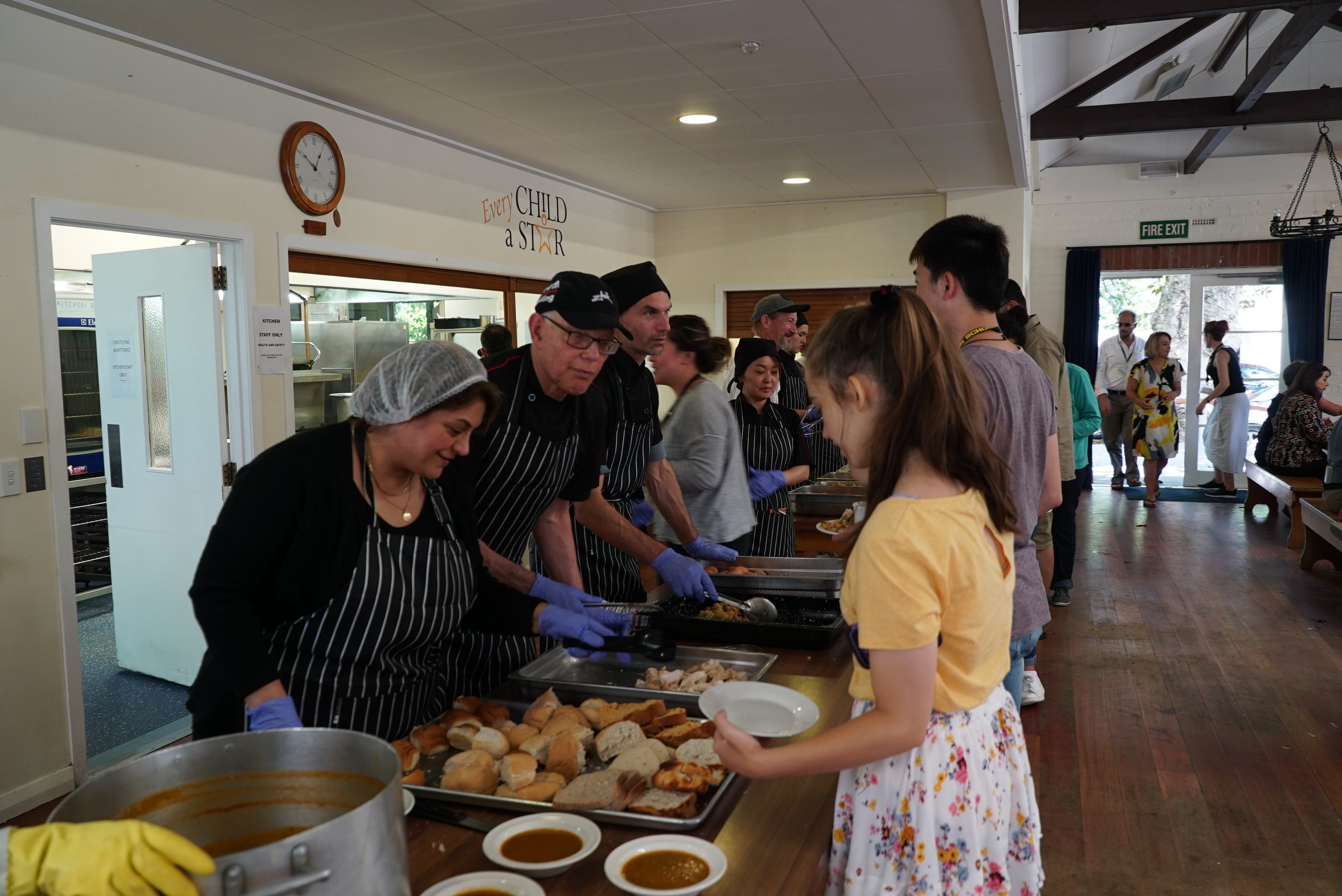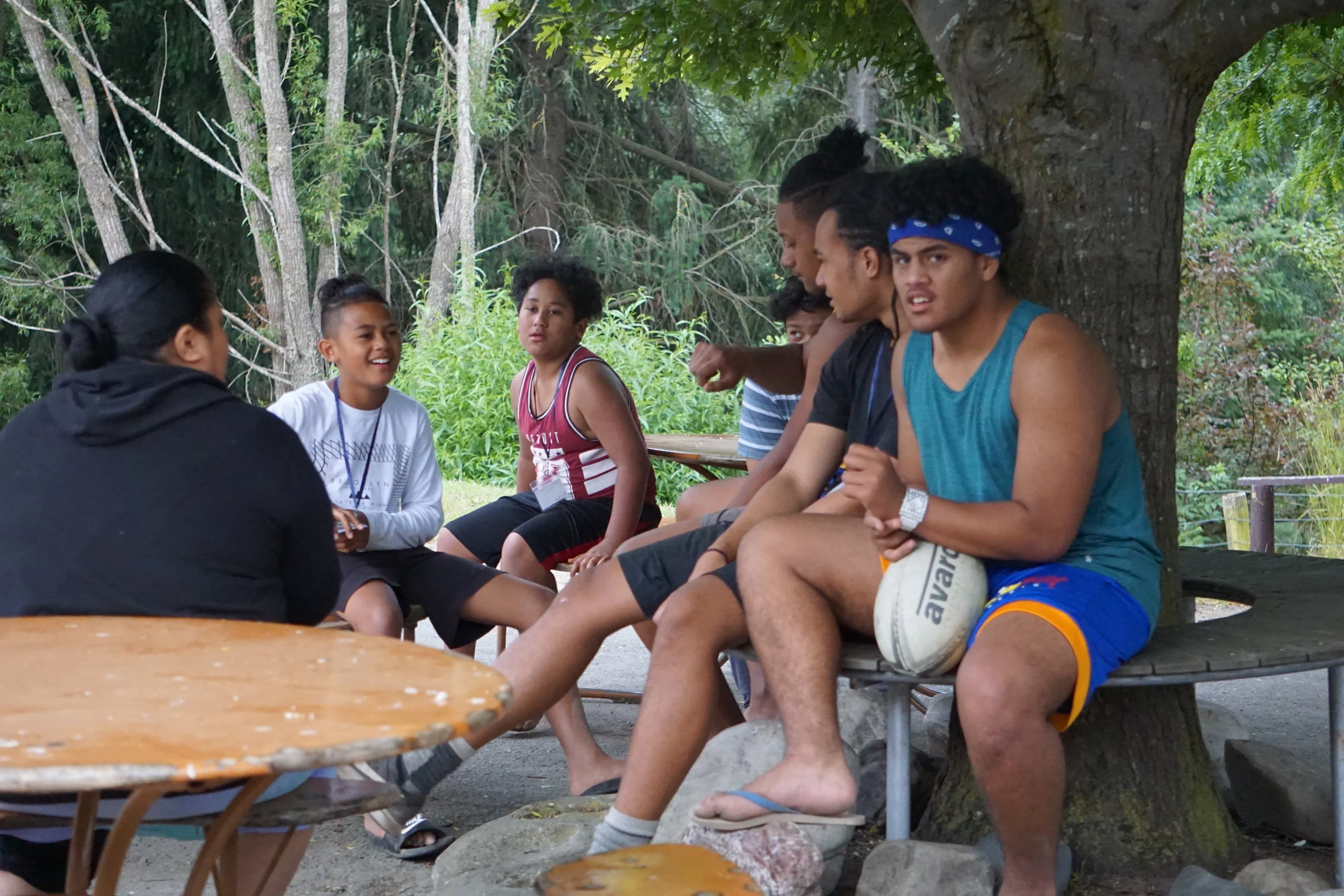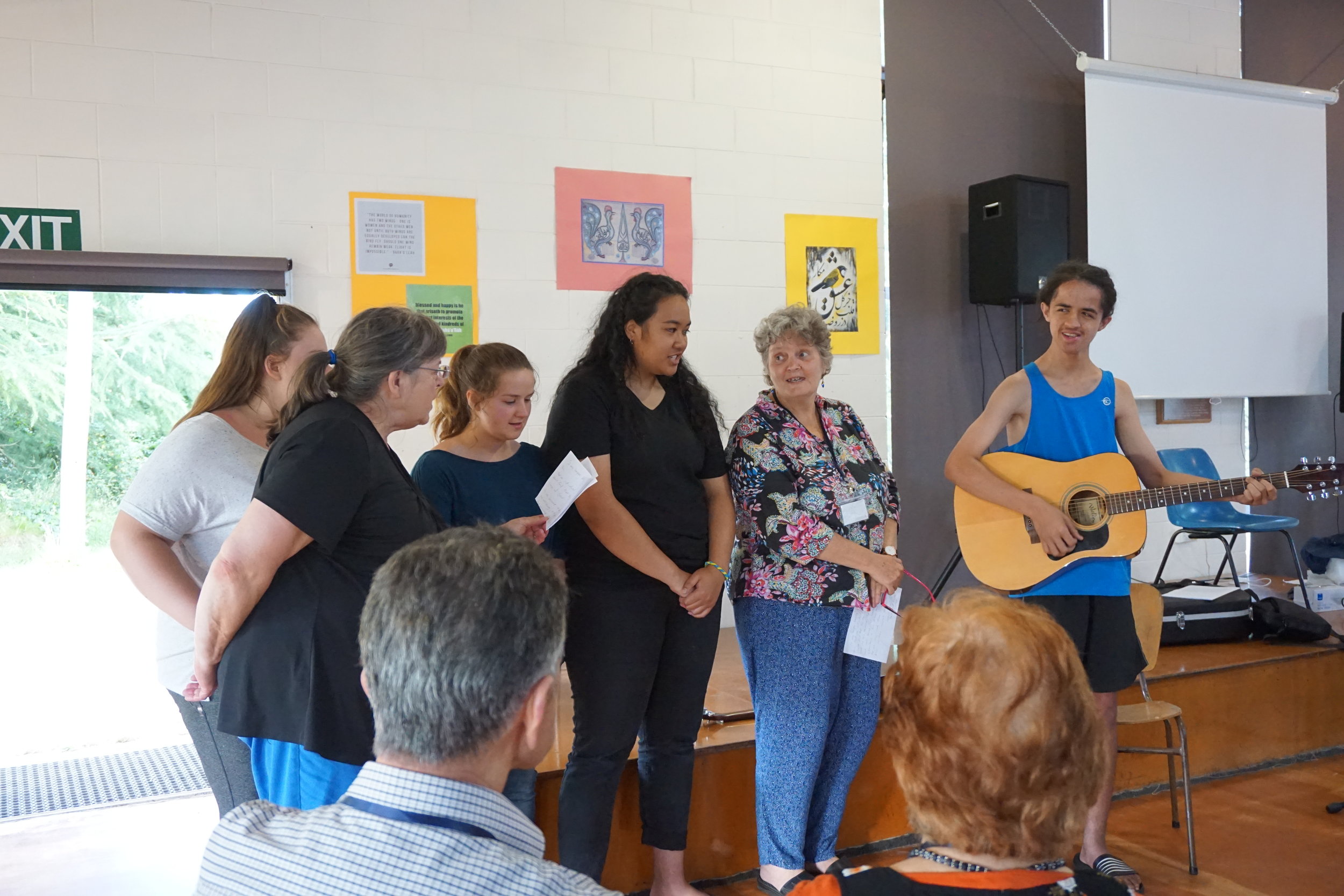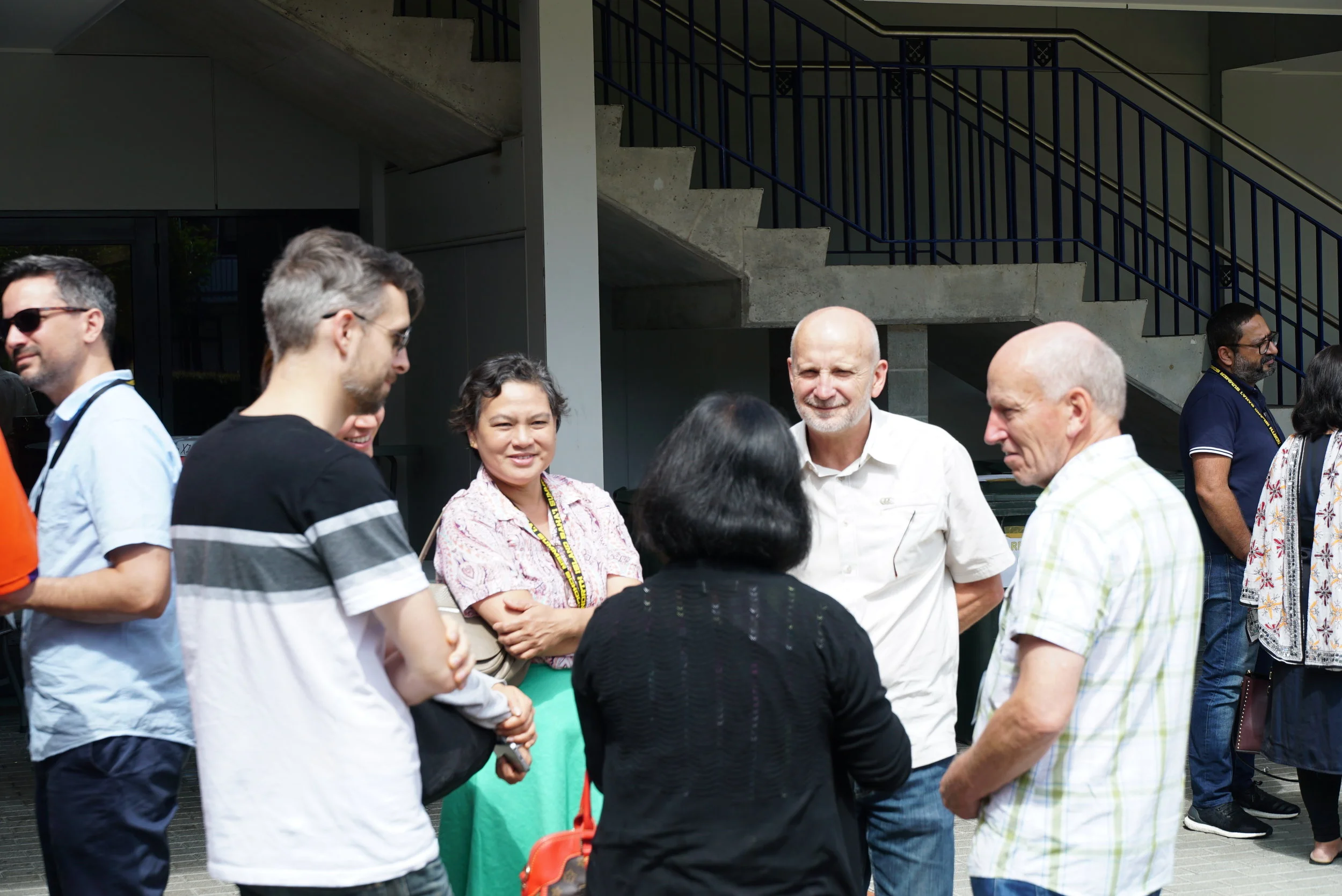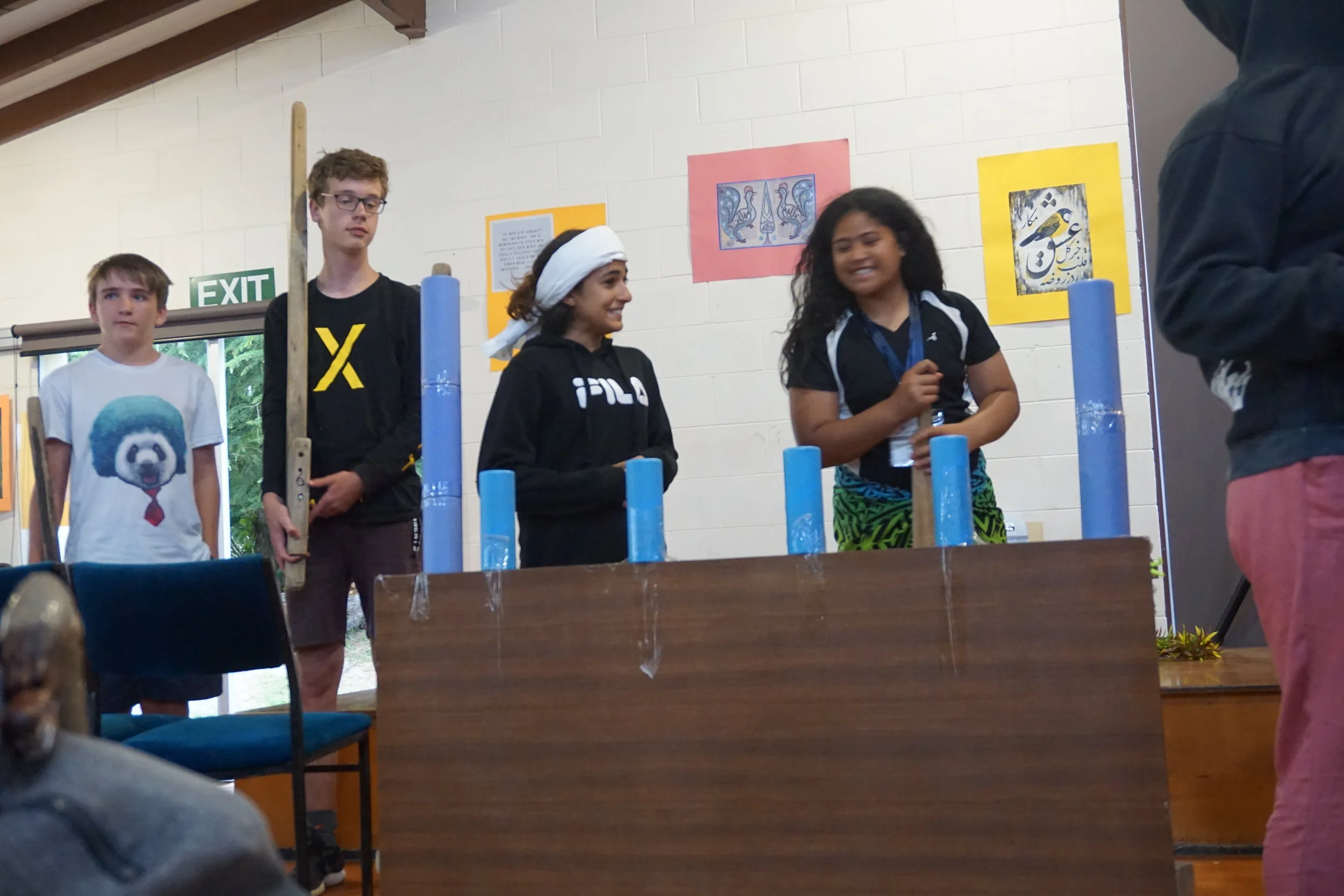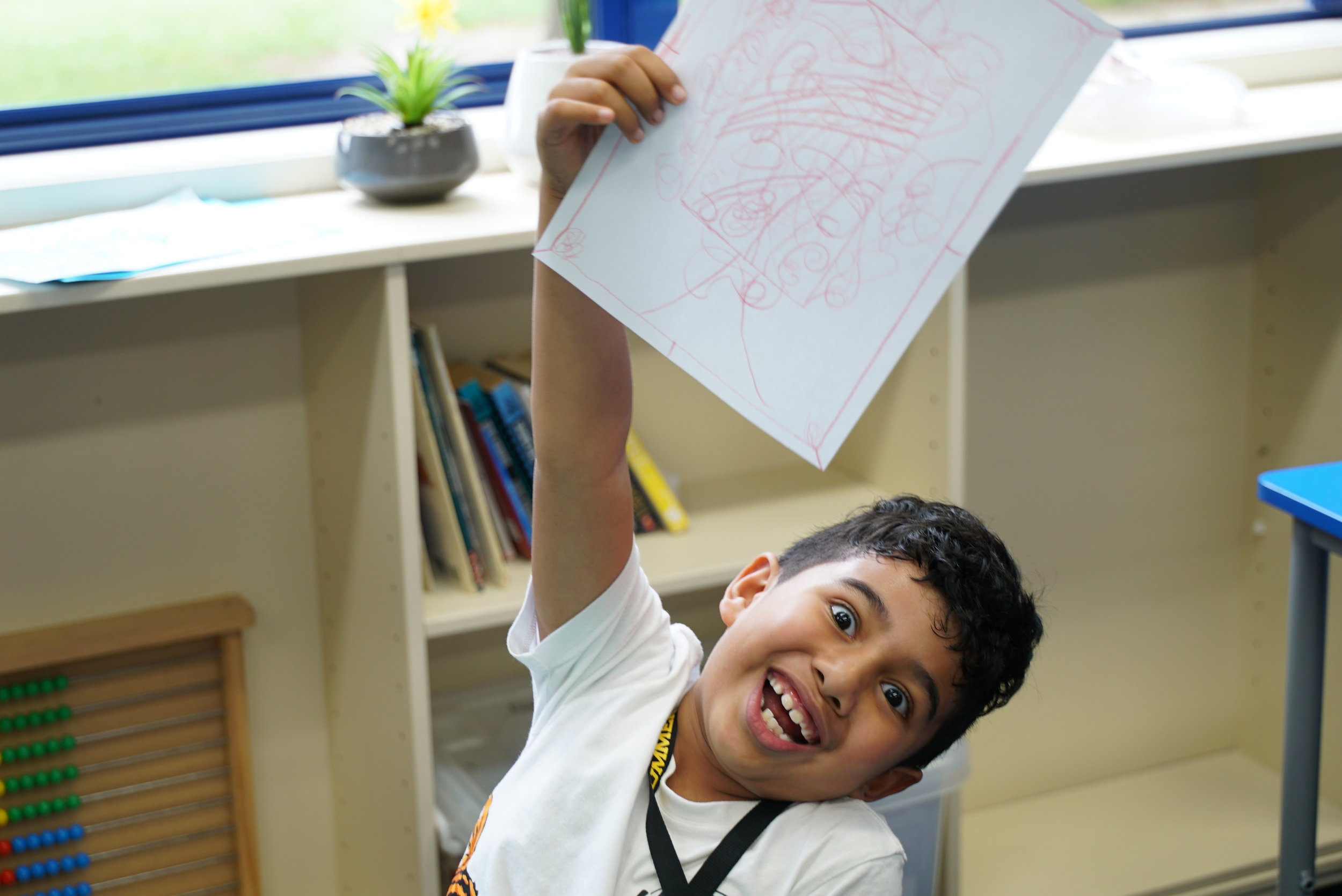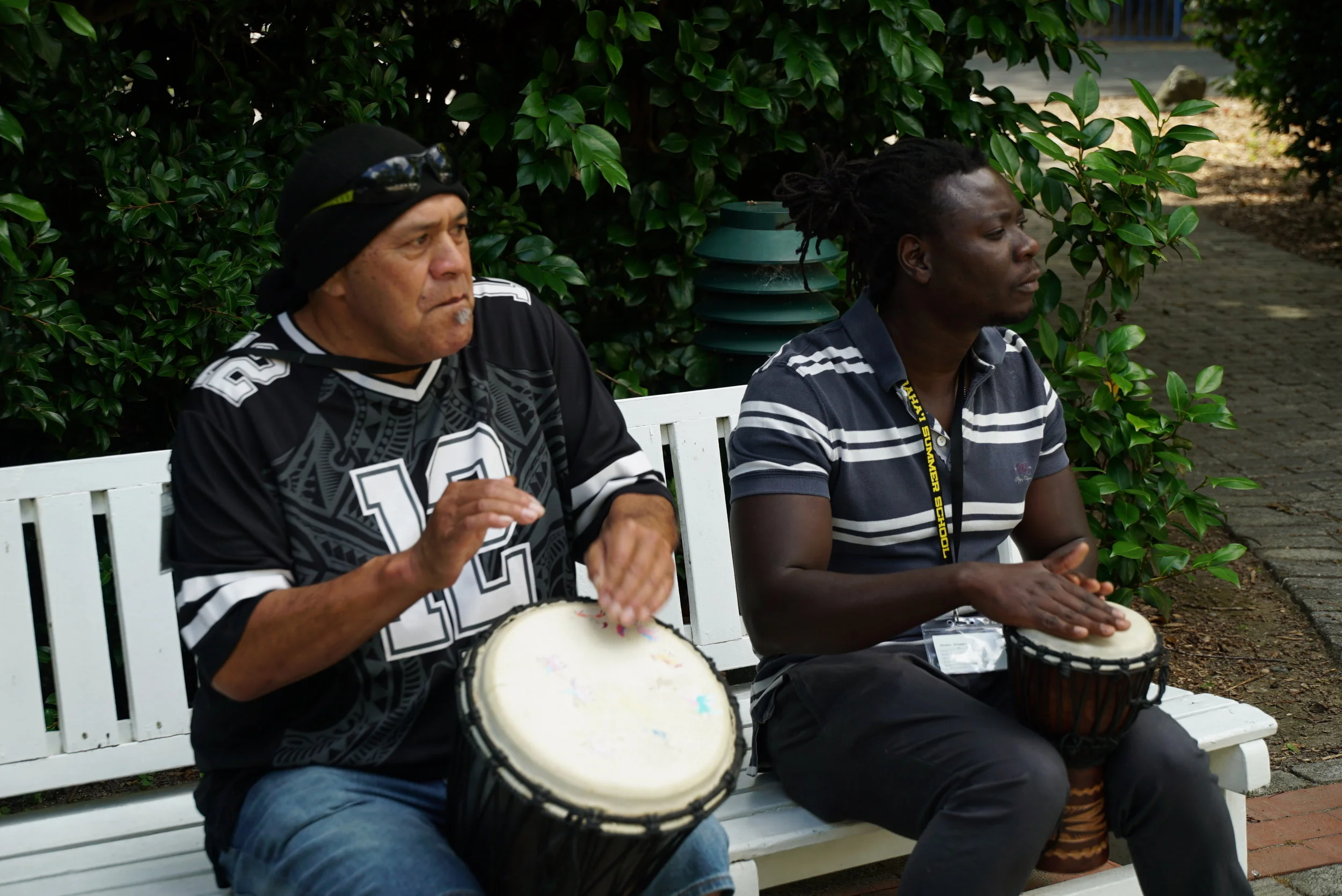Vision of a New World - Bahá’í Summer Schools 2018-19
The nearly 500 specific acts of service pledged, the many classes for children and junior youth, the abundant integration of artistic expression, the accompanying presence of institutions and agencies attentive to the aspirations of participants—these were among many features signifying an historic advancement in a more than seventy-year-long process of developing, refining, and bringing into realisation the fruits of the institution of the Bahá’í summer school in Aotearoa.
Some 900 friends participated in this year’s Bahá’í summer schools, held in the Waikato for the North Island and Canterbury for the South Island, at the Southwell School in Hamilton and the Waipara Adventure Centre near Christchurch, respectively. Each school opened with a reading of a letter from the National Spiritual Assembly addressed to the friends gathered at the summer schools.
Around the world, summer and winter schools have been a feature of Bahá’í community life for many years. In addition to providing an opportunity for participants to study the Bahá’í Writings, families and friends are able to spend a period of time together in a joyful atmosphere conducive to learning and the strengthening of spiritual bonds.
This year, the summer schools were privileged to have the accompanying presence of Dr Vahid Saberi, a member of the Continental Board of Counsellors serving Australasia. He presented the following plenary topics, developed in consultation with the National Spiritual Assembly:
Vision of a New World and the role of religion in its creation
“Building a safe home for the children of men”
What is my role in the process?
Vision of a new world and the role of religion in its creation.
Complementing each of these plenary topics, were workshops where smaller sized groups gathered to study and reflect on guidance pertaining to themes of: “Knowledge”, “Tablets of the Divine Plan”, “the Relationship of the Three Protagonists in the Community-Building Process”, and “Avoiding Extremes and False Dichotomies”
The institution of the Counsellors has of course, contributed to summer school throughout the years. Those who serve this institution carry forward the functions of the Hands of the Cause, such as to “edify the souls of men”, to “promote learning”, and to “assist in releasing the potential of the individual believer.” And so it is that records of one of the earliest summer schools describe Hand of the Cause Clara Dunn helping the friends draw up their plans for a teaching campaign. How similar it is, that our visiting Counsellor has helped participants to reflect on paths of service to be undertaken after the summer school.
“It’s important for us to think, ‘If the Bahá’í world that we see is not the same as it was six cycles a year and a half ago… am I the same? Have I advanced? How have I advanced? If I haven’t, that’s okay. I’m conscious of that now. How do I advance?”
“When we pray ‘O God! Guide me’ it’s not seeking protection from the big bad wolf outside, it’s from the big bad wolf inside. It’s our own ego. When you find your ego frozen beside the road, leave it.”
To help build capacity for the upcoming bicentenary, Mr Michael Day was invited to offer plenary sessions pertaining to the construction and significance of the Shrine of the Báb. In these sessions, Mr Day shared many stories, anecdotes, findings, and photographs.
"Running Throne - The story of the Shrine of the Báb (1850-1921)" based on his book Journey to a Mountain available from the Bahá’í Distribution Service.
Dame Robin White presented a plenary session which she and Ruha Fifita prepared, called Pieces of Infinity. This plenary described a process of collaboration that helped find coherence between work engaged in as artists and the work in which the Bahá’í community is engaged.
Classes for children and junior youth continue to advance in coherency with the educational process underway in communities and neighbourhoods around the world. For example, at the North Island school, approximately 60 individuals helped as teachers for children and junior youth, where not only class material, but teaching approaches and methods were aligned with capacities acquired from study of the institute courses.
The above schedule of classes in the North Island shows an example of efforts to draw on elements of the Ruhi curriculum for all age groups. Some lessons were specifically chosen due to the upcoming bicentenary, such as 11-year-olds studying Set 3 of Grade 3 about the Life of the Báb.
Summer school provides an environment for both new and potential teachers and animators to build experience and a greater vision of the programme. For many, this is the only avenue for teachers to gain experience working with the full range of grades, or for animators to work with large groups of junior youth. There is also an opportunity to practice working as a team that meets early each morning for devotions and lesson planning, then again in the afternoons to reflect and “hand over” the class to the next team of teachers. Likewise, for teachers , junior youth, and children, the summer school learning environment also provides an opportunity to engage with the curriculum in an intensive way.
The content of afternoon workshops covered a range of themes, some of which were chosen by regional institutions and agencies. Participants could choose workshops which suited their interests. For example, memorisation, the Dawnbreakers, Badí‘calendar, meaningful conversations, an information session about the Institute for Studies in Global Prosperity, Ḥuqúqu’lláh, living a spiritually and materially coherent life, an introduction to the Bahá’í Faith, and the child protection workshop. For the South Island school, the institutions arranged special panel sessions pertaining to devotional gatherings, pioneering, walking together on a path of service, and storytelling in preparation for the bicentenary of the Birth of the Báb.
Participants also engaged in a great plethora of workshops for building capacity for artistic expression. Topics included, among others: felt-making, meditation, story-telling, creating natural dyes, creating plum sauce for fundraising, the printing press, kapahaka, spoken word poetry, line dancing, open mic, gospel choir, collaborative canvas work, rock-painting, kite-making, flax-weaving, bubble-blowing, setting the Writings to music and recording songs, as well as learning prayers in different languages.
To infuse each day with the spirit of learning, mellifluous and heartfelt singing often characterised the morning devotions. Several evening sessions were integrated with music, dance, visual arts, dramatic presentation, story-telling, and even a viewing of selected chapters from the “Widening Embrace” film.
Friends also enjoyed basketball, touch rugby, tennis, football, volleyball, frisbee, backgammon, cards, collaborative group games, playground areas, swimming, and water slide activities.
Within the learning environment of summer school, and with the encouragement of the Regional Bahá'í Councils and Auxiliary Board members, many friends arose with the desire to translate new patterns of thought into practical action. Lending impetus to the upcoming national teaching conference (to be held 24-26 May), institutions and agencies were delighted as nearly 500 specific acts of service were pledged. These pledges included the following areas of service:
To prepare for the celebration of the bicentenary of the birth of the Báb
To establish and sustain regular family devotions·
To participate in the national prayer campaign·
To participate in the summer initiative
To settle as a homefront pioneer·
To deputise others in their efforts to teach ·
To give regularly to the Funds
To begin and proceed through the sequence of institute training courses ·
To serve as a tutor for the institute courses·
To systematically visit friends in their homes·
To establish or help sustain devotional meetings, children’s classes or junior youth groups
These efforts, in both quantity and quality, represent another step forward for the institution of the Bahá'í Summer School, which as the Guardian has stated, “constitutes a vital and inseparable part of any teaching campaign, and as such ought to be given the full importance it deserves in the teaching plans and activities of the believers.”
"We pray that summer schools may become increasingly effective in educating the friends so that they in turn may become useful channels for the diffusion of the Divine fragrances." —Universal House of Justice
North Island Summer School participants
South Island Summer School participants
Many youth arose to offer service to their younger companions
Dr Saberi and Mr Day, the two guest speakers this year, and both from Australia, take a moment to relax
For next year’s summer schools, 26-31 December 2019 in the North Island and 3-8 January 2020 in the South Island, the New Zealand Bahá'í community will have the pleasure of having Dr Firaydoun Javaheri and Mrs Vida Javaheri as keynote speakers. More details will be provided in due course.
Dr Firaydoun Javaheri - Photo from Bahá’í World News Service





